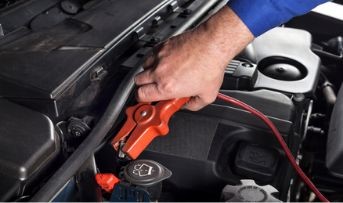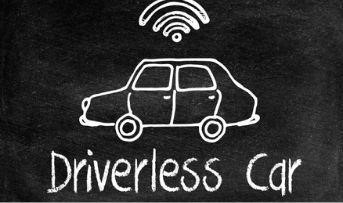General Insurance Blogs, Articles & Updates by - Magma HDI
Have us call you
- RENEW YOUR POLICY
- BUY NEW POLICY

With insurance digitisation, buying multiple policies and non-disclosure is a thing of the past
Unfortunate events are a constant risk that one must always be prepared for. While you may have an optimistic view of the future, the financial implications of a mishap are always too heavy to burden. Online general insurance is a financial product that comes in the clutch in such uncertainties to protect policyholders after paying a comparatively meagre premium. With the demand for insurance growing daily, the insurance sector constantly evolves to provide better services, more values, stringent regulations, and preventive mechanisms to tackle fraud.
Initially sold as a safety mechanism, online general insurance policies are now seen as more than they offer at face value. They are seen as investments, tax-saving opportunities, and more. However, some policyholders try to take advantage of loopholes in the policy wording to derive the most significant benefit by defrauding insurance companies by resorting to means like improper disclosure of facts, misrepresentation, etc.
With the recent wave of digitisation, the insurance regulatory authorities are setting their foot down and laying the framework for a transparent and non-conducive ecosystem for insurance fraud.
The issue.
Over the years, the insurance sector has seen an extreme change, from witnessing the risk-averse masses to offering facilitative services like online general insurance that are convenient for consumers with the benefits of additional features.
However, over time, the scope of the policies is being misinterpreted, leading policyholders to purchase multiple covers to increase their net insured sum payout. This has been noticed especially in the case of online general insurance, where various policies from multiple insurers are purchased to enhance the total payout.
The primary concern in such a situation is that each asset has a fixed value determined by careful expert assessment and evaluation. After risk evaluation, the premium, coverage extent, etc., are decided. Policyholders purchase multiple policies to override this constraint on the payout and often do not disclose the same to the existing insurer.
Another reason that caused the lack of complete data availability with insurers is the intense and duplicate paperwork. Customers used to skip several essential fields due to redundant questions and excessive effort.
The solution.
During times of heavy dependency on paperwork, it was difficult for insurers to identify such cases until the point of raising a claim. However, with technological advancements and the onset of the digital era, the insurance sector is not left behind in upgrading its ecosystem to tackle such concerns.
The account aggregator system, which is now applicable for all non-banking financial companies, data sharing concerning customers' investments and savings is set to transform the information availability for insurance providers.
The account aggregator system will make all relevant data available to authorised bodies electronically. The use of e-insurance accounts (e-IA) will only facilitate the process. While the e-IA, a digital portfolio of insurance policies held by an individual, is for the policyholder's benefit, the aggregator system makes all the necessary data accessible in a few simple clicks to prevent over-insurance, fact-check disclosures, and reduce paperwork.
The concerns.
Anywhere that data sharing takes place is seen as a significant concern due to the constant risk of data leaks, especially when dealing with such confidential information. However, the RBI has already announced and laid the foundation for an institution to take care of data collection and protection to assure policyholders and protect their interests.
As we progress technologically, we will be in a better position to respond to the dynamic demand across various sectors, of which insurance is one. Policyholders must take extra caution while evaluating and purchasing online general insurance policies to ensure their safety and comply with the relevant regulations.
Click HERE to buy online general insurance.
Disclaimer: The information provided above is for illustrative purposes only. To get more details, please refer to policy wordings and prospectus before purchasing a policy.

Top destinations around Mumbai for a perfect bike trip in the monsoon
Monsoons in India are the perfect season for wanderers to move out and explore places. With the slight drizzles and the perfect rainy-day playlist playing, it would be like a dream travel sequence come alive. And if you are a bike fanatic, you would agree that this weather is the perfect time to take your bike for a ride to get that much-needed break. Enjoy the valleys, the lush greens and the hills in the lap of nature, away from the chaotic hustle and bustle of the fast-paced city life.
Are you someone who lives around Mumbai or is planning to visit Maharashtra? If yes, we have curated the best places for you to make your road trip successful. This blog will discuss top destinations around Mumbai for a perfect bike trip in the monsoon. We have included all the details you need to check out and add that destination to your travel itinerary.
Whether travelling solo or with a companion, these locations will give you every opportunity you can grab to enjoy the rains and create memories for a lifetime. So, let’s get started!
1. Lonavala:
Lonavala has to be on our list and yours too. The forever obsession with the lush greens and the overall beauty of this place has not just mesmerised people in the state of Maharashtra but from every nook and corner of the country. You can take the old Mumbai-Pune highway to enjoy that bike ride you’ve been craving for.
And there is a list of beautiful places you can visit, starting with Korigad Fort, Rajmachi Fort (about fifteen kilometres from Lonavala), Tiger’s Leap, Lonavala Wax exhibition, Duke’s nose, Lohagad and much more! And, as Lonavala and Khandala are just five kilometres apart, you can head to Khandala and experience all the natural beauty of the valleys, waterfalls, etc., the place has to offer.
2. Mahabaleshwar:
The second most known and attractive destination in the Maharashtrian region is Mahabaleshwar. Being one of the longest driving routes near Mumbai, you can take your bike and let the wind do the talking. And if you are someone who always looks for a hint of adventure during their trips, then make sure to visit Panchgani (not very far from Mahabaleshwar) and grab the opportunity to experience paragliding.
Enjoy the surrounding views of the location wrapped in the foothills of nature from a height. The main attractions of Mahabaleshwar include strawberries and mulberries market, Three Monkey Point, Needle Hole Point, Wilson Sunrise Point, and much more.
3. Matheran:
The ride from Mumbai to Matheran is quite beautiful. Feel the calm and peace through your veins with a cold breeze against your skin. Unwind yourself while riding and feel energetic. As you reach Matheran, you will notice the absence of automobiles as the hill station is an automobile-free zone.
But don’t worry, you will have a lot of hand-pulled or horse-pulled rickshaws to take you around this marvellous and endowed with scenic locations which offer you the views of a lifetime. You can also plan to go on a trek to Matheran and have quality time with yourself or your company in the middle of the large trees and hills. The main attractions of this location include One Tree Hill Point, Louisa Point, Porcupine Point, Panorama Point, etc.
Other destinations making it to this list include Malshej Ghat, Durshet, Sula Vineyards, Pelhar Dam, Igatpuri and Alibaug. Remember that your bike is well serviced and has valid insurance to have a comfortable and memorable bike trip. Make sure to fit these important aspects into your travel schedule. While we are already talking about bike trips, purchasing the best two-wheeler insurance in India is a wise option to ensure your bike is safeguarded against all unforeseeable circumstances. The monsoon is here! Get your gear, pack your bags, and push the pedal towards serenity.
Click HERE to know more about the benefits of purchasing the best two wheeler insurance in
Disclaimer: The information provided above is for illustrative purposes only. To get more details, please refer to policy wordings and prospectus before purchasing a policy.

Legalities you should know before renting out your home
Renting a house is a time taking process. If not handled correctly, it can become a significant headache. Tenant misuse of the property or refusal to leave, late rent and maintenance fee payments, and hunting for new tenants are some issues you may encounter when renting out your home. As a precaution, homeowners may get landlord insurance, specialised home insurance to protect themselves against potential financial losses that may arise from tenancy contracts.
You can safeguard yourself, your rental business, and property as a landlord by being aware of your rights and responsibilities under the law.
1. Written agreement:
For the law to protect the interests of both tenants and owners, a written agreement is crucial to facilitate a smooth transaction. The agreement must be written up in legalese and signed by both parties. The copies are given to the tenant, and the owner retains the original. Tenants shall be compelled to pay rent once the owner delivers a copy of this agreement to tenants.
2. No discrimination:
Ensure you adhere to the Rent Control Act while marketing your property, selecting new tenants, or setting apartment rules. Any acts or policies must be fair to everyone and cannot be perceived as marginalising certain people but not others.
3. A tenant's eviction:
A landlord can only evict a tenant by providing advance notice and a clear explanation. Typically, the notice period lasts between 15 days and two months. The landlord is entitled to receive equal to twice the monthly rent if the tenants do not leave the property within the allotted time.
4. Access to landlord:
Once the lease is signed, the apartment becomes the tenant's property, and the landowner is prohibited from entering without their consent. The tenant may file a lawsuit against the landlord if he does this. He must give advance notice regarding apartment inspections, repairs, or improvements.
5. Property's maintenance:
Apart from normal wear and tear, unless the agreement states otherwise, the upkeep of the property is the joint responsibility of both parties. If the owner refuses to pay for the repairs, the amount can be withdrawn from the periodic rent. If the tenants refuse to pay for the repairs, the amount can be subtracted from their security deposit.
6. Restriction on rent increases:
In violation of the contract's provisions, the landlord cannot raise the rent. If it is specified in the agreement, there is a cap on how much he can raise the rent.
7. Necessary supplies:
Tenants have a fundamental right to amenities such as water, power, parking, communication links, sanitary services, etc. Even in the event of non-payment of fees, neither the renters nor the owners may stop providing these services. The local rent authority may step in, launch an investigation, impose penalties on the parties involved, and compensate others.
8. Security deposit:
Tenants are entitled to their security deposit reimbursement within one month of vacating the property. Before reimbursing the money, owners can subtract the responsible amount. A security deposit exceeding three times the rent cost is illegal to demand.
9. Payable rent:
The landowner and the tenant must agree on the amount of rent due as specified in the written lease agreement in the case of a new tenancy. The landlord must provide the tenants with three months' notice if the rent is about to change. The overall worth of the building, which includes the market value of some of the land, the cost of construction, and the importance of amenities, is typically used to calculate the chargeable rent.
Sometimes, the landlord and tenant have a verbal understanding, but it's preferable to document everything. A formal agreement must contain all the specifics so that both parties know their legal obligations. If the tenant under your lease agreement fails, your home insurance for landlords will cover the loss of rent. Always review the prevailing regulations and consult a lawyer knowledgeable in landlord-tenant legislation.
Click HERE to buy the best home insurance in India.
Disclaimer: The information provided above is for illustrative purposes only. To get more details, please refer to policy wordings and prospectus before purchasing a policy.

Understanding the importance of motorcycle windshields
Have you ever been riding your motorcycle in the crisp morning air, enjoying the cool wind on your face, and had a bug smack you right in the face? Although it makes for some good comic relief, it is one of the most annoying experiences a rider can have. The solution? Motorcycle windshields. A windshield is installed to deflect the wind from hitting your body while enjoying riding at high speeds. It also helps by providing the rider with a better aerodynamic outline than the body.
This blog gives you a better insight into motorcycle windshields so you can decide if it is a worthy addition to your motorbike.
Pros: 1. Wind protection
Motorcycle windshields help protect you from the wind blast to your face and chest. Mitigating the wind force against your face and chest helps combat back, arm, and neck pain. Less pressure on your body will result in a comfortable ride. If you're planning to ride your bike for more than a few hours, this tool will pay great dividends by the end of the day.
The windshield will divert hot and humid air in the summer and chilled and wet air in the winter. Although it cannot substitute for a good few layers of clothes, it also reduces wind chill when speeding down a highway. Similarly, windshields protect you in hot, dry weather as well. When driving down the roads at high speeds, your sweat dries up faster, resulting in dehydration. Dehydration can cause serious health issues and can put a damper on your driving experience.
2. Better aerodynamics
The stability of the bike decreases when there is drag in the air. When cruising down roads at high speeds, the body creates a fair amount of drag. Fortunately, one of the benefits of having a windshield on your motorcycle is that it makes a better aerodynamic outline than the body, resulting in less drag.
3. Less fatigue
The reduction of wind blasting helps reduce fatigue over long distances. Keeping your posture upright while the wind pushes into you seems like effortless work over short distances, but over long periods, it might be the reason you feel burnt out.
4. Debris protection
Debris gets kicked up by passing vehicles all the time. Your motorcycle windshield can protect you from this and make the ride much more comfortable.
5. Reduce wind noise
The sound made by the engine usually enhances the experience of riding a motorbike for bike enthusiasts. The purring of the machine is generally deafened by the wind noise at high speeds, which diminishes this experience. Motorcycle windshields can solve this problem of wind noise.
Cons:
The biggest and possibly the only downside to a windshield is its uncool and dorky look. A windshield makes a bike look less sporty, and many people find that very frustrating. Also, who wants to see their bike's dirty, scratched-up windshield?
Another con might be reduced visibility right in front of the motorcycle due to the windshield being tinted or dirty. This is a huge distraction and can cause accidents. The pros overwhelmingly outweigh the cons of installing a windshield. Especially in harsh weather conditions, these can be a lifesaver and can pay great dividends for a small investment.
The pros overwhelmingly outweigh the cons of installing a windshield. Especially in harsh weather conditions, these can be a lifesaver and can pay great dividends for a small investment. As we talk about investment, there's one more investment that you need to consider as a bike owner. Purchase reliable bike insurance to add an additional safety net to your two-wheeled friend. Consider buying 2 wheeler insurance online and save time and money in return for value-added benefits.
Click HERE to know more about buying 2 wheeler insurance online.
Disclaimer: The information provided above is for illustrative purposes only. To get more details, please refer to policy wordings and prospectus before purchasing a policy.

Top emerging technology trends set to bring a change in motor insurance
Technology has constantly been evolving and has been instrumental in all the big and small changes happening in the world. While there is a constant debate as to whether technology is a boon or a bane, it cannot be denied that our lives have been made easier by the many technological advancements made by humans. In today's age, everything is data-driven.
Starting from your date of birth to the last place you swiped your credit card is monitored and constantly fed to databases. Owing to the ever-growing gap between consumers' need to work and the ease with which they can achieve it, technology has taken centre stage and paved the path for accessible, hassle-free experiences. One such area is motor insurance. The rise of new technology has made its way into the world of insurance and is revolutionising services and interaction.
This article will discuss the emerging technology trends to change the motor insurance world.
1. Artificial intelligence:
The words artificial intelligence or AI are casually thrown around in everyday conversation. What is AI, and how is it changing motor insurance? In layman's terms, AI is the intelligence used by machines to undertake human-like tasks faster and more efficiently.
With the intervention of AI, insurers can meet the consumer's needs more quickly. AI is capable of finding unique tailor-made solutions to suit all your insurance needs. Insurers can access reports and data faster, thus speeding up the whole process.
2. Machine Learning:
The building blocks for artificial intelligence, machine learning is responsible for accessing, analysing, and modelling large chunks of data. A single run on these machine learning models can give a detailed analysis of every aspect of a person's life, given they have the data— pre-programmed algorithms to improve processing speed and yield accurate results. With machine learning, queries and identification can be made faster and effortlessly.
3. Internet of Things (IoT):
The concept of data privacy is lost on many people. People willingly give extra information if it means they can cut the prices. An extension of machine learning models and artificial intelligence concepts, IoT can process large amounts of data and automate the sharing process. IoT can also aid in risk assessment and mitigation to directly manipulate the new car insurance rates and the annual premium.
4. Chatbots:
Chatbots give you a human-like experience. With chatbots being used to their maximum potential, many insurance-related queries and doubts will be handled using these advanced bots.
Chatbots can efficiently communicate with customers; if they cannot solve a query, it will be forwarded to the person in charge. This helps everyone stay in the loop while not wasting time and resources. This produces fast and effective outcomes while assuring great on-the-go customer support.
5. Insurtech:
Insurance and technology together make insurance companies. They use the latest technologies to mitigate the insurance cost for customers and insurers. All the technologies mentioned earlier by insurance companies can revolutionise customer relationship management. They can use such tools to develop products that can help risk management and mitigation.
These were just a few of the many new technology trends that will take the world by storm. The rapid resurgence of technology can be scary and intimidating. Trusting technology-driven solutions might take some time for the common people, but the important thing to understand here is that technology can be a great friend if used correctly.
In the future, technology can assure surprising advancements in the insurance industry, which may promise new car insurance rates that will sit right in your budget while giving you the best covers and add-ons.
Click HERE to check out the new car insurance rates in the market.
Disclaimer: The information provided above is for illustrative purposes only. To get more details, please refer to policy wordings and prospectus before purchasing a policy.

Tips for transferring bike insurance from one owner to another
Owning a vehicle is a dream for many. In recent times, a vehicle has become a necessity. Be it a quick run to the nearby grocery store or taking road trips during the weekend, automobiles have become the new favourite investment for most people. Since the prices of cars and bikes are increasing daily, potential buyers are forced to have a second thought. While some people opt for loans or EMIs to pay for their motor vehicles, others prefer using second-hand cars.
In India, it is illegal to drive around without motor insurance. As a second-hand vehicle owner, transferring the insurance and understanding the nuances of the same can be challenging and intimidating. This article is here to help you understand the process better so that you can drive around worry-free.
Why is it essential to transfer the insurance policy from the previous owner to the current owner?
If the insurance ownership is not transferred to the new owner, then according to the law, the new owner can be charged legally. Not only that, if the vehicle were involved in an accident without having the name on the policy papers, the new owner would not be able to make any insurance claims. Without the insurance cover, the owner will be liable for all financial costs arising from an accident.
Let's look at the steps involved in transferring insurance ownership from one owner to another:
1. The vehicle's former owner must write an application to the RTO upon selling the bike.
2. Fill out a form at the RTO and submit RC, emission certificate, insurance papers, and fitness certificate.
3. Do not forget to carry valid IDs and passport-size photographs of the applicant.
4. The applicant must submit forms 28 (No objection certificate) and 29 (states the selling and purchasing of the vehicle between two parties) to the RTO.
If the buyer and the seller live in the same state, then report the transfer of ownership to the RTO within two weeks of buying the vehicle. The report must be made within forty-five days if both parties do not reside in the same state.
If selling an old vehicle, the seller must provide all details about the buyer and the bike to the motor insurance provider so that they can stay informed and updated.
After you visit the RTO where your bike is registered, you will need to submit a few forms along with the insurance papers and other required documents. The insurance provider might check the vehicle to ensure if it is in working condition and issue a fitness certificate. After submitting all the files, the RTO will verify and transfer the insurance to the new owner.
What are the benefits of insurance transfer?
1. If the new owner causes an accident, they cannot hold the seller accountable as the insurance papers are in the name of the new owner. This way, you can evade litigation and accountability for the damages caused.
2. NCB: If you have not claimed your vehicle's insurance before the transfer of ownership, then you are qualified for a No claim bonus. During the insurance transfer, you can collect a certificate of eligibility for NCB that can be applied to your following policy.
These were a comprehensive list of all things to remember while undertaking insurance transfers. As mentioned above, the seller and buyer can reap benefits from an insurance transfer. Do not forget to initiate the transfer as soon as possible to avoid legal hassles and financial obligations.
Remember to check out other benefits of policy transfer with your motor insurance provider and ask if there are options for add-ons to the existing policy. This will help you safeguard your vehicle as per your needs.
Click HERE to find out more about motor insurance.
Disclaimer: The information provided above is for illustrative purposes only. To get more details, please refer to policy wordings and prospectus before purchasing a policy.

Dents are not the only things that can ruin your car’s fresh paint job
Your car's aesthetics are important to public perception of its value. The first thing that everyone notices about a vehicle is its glossy, shining exterior. For an asset that doubles as a symbol of wealth, it is essential to check car insurance price in India to protect your vehicle against accidents and ensure the upkeep of its exterior appeal.
We all wish to protect our car's fresh paint job at any cost. Most of us believe that dents are the primary cause that ruins them. However, it is not so. Let us look at the factors other than dents that can ruin your car's fresh paint job.
1. Dust:
Dust is a major enemy of your car's fresh paint job. It may contain high iron that causes rusty discolouration and corrosion to the car's paint. Do not rub the dust settled on your car body with your hands or a dry cloth. It may damage the paint and cause scratches. Always wash off the dust with water and soap, and get your car paint waxed to protect it from external damage.
2. Fuel spills:
Often, fuel spills on the car paint while refuelling the car at a petrol pump. This causes permanent damage to its paint. The damage is usually more when the painted panel is not from the factory and has been repainted. Avoid filling your car tank to the brim, so fuel does not drip out. Even if it does, immediately clean it with a soft cloth, so it does not form a permanent stain around your fuel inlet and damage your car paint.
3. Stickers:
Big attractive stickers are available in the market to make your car look fancy and trendy from the sides, front bonnet, or rear. But have you wondered how they will impact your car paint when you remove them? Do not put stickers on your car's exterior, especially if it has returned from a fresh paint job. They have strong adhesives on them and will ruin your car's paint when taken off forcefully. Worse, they may start peeling off by themselves in bits and parts and make your car exterior look ugly.
4. Car covers:
Car covers are made to protect your car's exterior and paint, right? Surprisingly, even they can damage your car's fresh paint job. Car covers made of thick fabric or non-breathable material trap moisture inside them. They can cause rust formation from oxidation in the long run and damage your car's body and paint. Also, a car cover made of thick fabric can cause scratches and ruin your car's new paint job after coming in contact with the dust on your car's exterior.
5. Excessive sun:
Exposure to too much sun also ruins your car's fresh paint job. Excess sun exposure deteriorates the paint quality and starts fading and cracking after a while.
6. Tree branches and road debris:
If you park your car under a tree regularly, broken twigs and branches might damage your paint job. They can cause unwanted scratches and cause the paint to crack too. Road debris can have a similar effect on your car's paint. If you regularly drive through broken roads full of rubble and potholes, there is a high chance that they will clash against the sides of your car and ruin the paint.
Besides protecting your car's paint from external damages, buy car insurance that will provide financial assistance in case of accidents, damages, malfunctioning, or theft. Evaluate car insurance price in India from various companies, and choose the policy that provides you with the best protection at the most reasonable prices.
Click HERE to check car insurance price in India.
Disclaimer: The information provided above is for illustrative purposes only. To get more details, please refer to policy wordings and prospectus before purchasing a policy.

These seven factors determine your car insurance cost
Car insurance costs can vary significantly depending on various factors. The total price you give at the beginning of policy renewal is the cost of the car insurance. In this article, we will look at a few factors responsible for the total cost of your car insurance.
1. The model of the vehicle can significantly determine the cost of your insurance. The more the market value of the car, the more will be the insurance cost. If your vehicle has good engine capacity, advanced technology, and electronic features, the overall cost of your insurance will be higher.
2. The geographical location is a lesser considered factor when it comes to car insurance. If your location is the face of extreme weather conditions such as rains and cyclones, then it is likely that the costs will increase. These are not just limited to natural calamities. Human-made disasters like riots and vandalism also fall into this category. Areas prone to riots and destruction can lead to heightened insurance costs.
3. Driving records are one of the most crucial factors that decide the cost of your premium. If you have a clean track record with no accidents or speeding tickets, then it is highly likely that your insurance costs will reduce. If it is proven that you are a responsible driver, then it automatically translates to lesser chances of accidents and danger. On the other hand, even if you have one ticket or one accident under your belt, the insurance costs can drastically change.
4. Suppose you have never raised a claim or are eligible for a no-claim bonus when you sign up for your online motor insurance renewal. In that case, insurance companies will provide you with a hefty discount on the insurance costs. If no claims have been made so far in your tenure, it proves that you are a responsible driver and a car owner. All these are extra points that the insurance companies consider while calculating the final cost.
5. If you have opted for voluntary deductibles, then the overall cost of the insurance falls automatically. However, this will not be possible if you take third-party insurance. Ensuring that you as an owner will pay a pre-determined amount in case of accidents and damages is a sign of assurance that you will not partake in malpractice to take unlawful benefits of the insurance system. Due to this, insurance companies will provide you with a low-cost insurance policy.
6. Digital insurance is the new policy in the market. With everything digitised, companies can cut costs on operations. Hence, they can offer better policies at lower price points. Consider opting for an online motor insurance renewal to understand digital insurance better. You will get a perfect walkthrough of the online procedures.
7. The type of fuel that you use in your vehicles can also determine the cost of car insurance. If your vehicle runs on CNG or diesel, then the cost of insurance will be more than that of cars running on petrol. Not only that, but the mileage also decides the overall cost of your insurance. These factors contribute to the overall IDV or the insured declared value. The higher the IDV, the more the cost of car insurance.
These are some of the factors that affect the cost of the car. Remember that proper maintenance and aftercare will help your vehicle run smoothly for an extended period. You must provide timely maintenance and servicing to keep your car working correctly and efficiently. Add more value to your vehicle by investing in good car insurance offers available in India. If your car insurance is about to expire, let this article remind you to opt for online motor insurance renewal for a contactless and hassle-free experience.
Click HERE to find out more about online motor insurance renewal.
Disclaimer: The information provided above is for illustrative purposes only. To get more details, please refer to policy wordings and prospectus before purchasing a policy.

The pros of laser surgery for getting the correct eye vision
How often have you forgotten your spectacles at home and had difficulty recognising people's faces from a distance? These are some of the widespread yet frustrating problems people face with glasses. One of the most convenient and revolutionary technologies for solving this problem is laser eye surgery, popularly known as LASIK surgery.
With about a quarter of the world facing vision problems, it's not surprising that laser eye surgery is becoming increasingly popular. This blog aims to give you an insight into this technology and how it is revolutionising the world.
The need for LASIK:
When we look at a particular object, light from that object enters the eye and passes through the natural lens of the eye. This natural lens is responsible for correctly refracting the light to hit the retina. The eye's retina is responsible for focusing all the light and sending signals to the brain to help us interpret what we're seeing.
When light does not focus upon the retina correctly, vision can get blurry. This might be because the cornea isn't curved perfectly, or it can be because the eye lens present in our eye is slightly longer or shorter.
This refractive procedure is usually done to correct one of the following three vision problems: Myopia, Hypermetropia, and Astigmatism.
How does LASIK work?
Laser surgery is a procedure where the patient's cornea is reshaped by using an evolved cutting laser technology to help it refract the light to provide clear vision. Corneal reshaping is done by mapping the entire cornea precisely and then using this to plan the surgery accurately.
Pros:
1. Quick and safe – The most inviting aspect of this procedure is that it is a short one. LASIK takes only 10 minutes to mitigate your vision problems for each eye, so 20 minutes total to have perfect vision. It is also a very safe procedure, with 98 percent of people satisfied with the surgery's results.
2. Painless procedure – This procedure is entirely painless due to the eye drops your surgeon will apply at the beginning of the operation. Moreover, there is minimum post-operative pain, with no stitches or bandages required after LASIK.
3. Fixed cost – While the procedure is cumbersome on the wallet, it is a one-time investment. Glasses and contact lenses are cheaper than surgery, but they are building expenses with the cost of regular eye check-ups, lenses, and frames. However, there's a good chance LASIK is not covered by your insurance. Research online health insurance to find one that does.
4. Enjoy your favourite sports without fear – For many people, this surgery is not an option but a lifesaver. Whether you want to enlist in the police, army or play contact sports where wearing glasses is not an option, LASIK is the knight in shining armour if you don't want the hassle of carrying your lenses and lens cleaning solution everywhere.
Cons:
While this procedure has numerous advantages, there are some drawbacks too. You need to take several things into consideration before taking this big step. It is a huge investment and might burn a hole in your pocket if you're not ready. Like any other surgery, there are risks and side effects involved. Some side effects include dry eyes, a halo effect with bright light, and poor night vision. Consult your eye specialist before making any decision.
Although laser eye surgery is relatively quick and painless, you must take proper precautions. Avoid using any eye makeup or lotions around the eye for about three days before the surgery. Also, make sure to arrange a ride back home because you might not be able to drive right after the surgery due to blurred vision and the sedative. As most insurance plans might not cover the cost of laser eye surgery, it is best to research online health insurance to understand the terms.
Click HERE to know more about online health insurance.
Disclaimer: The information provided above is for illustrative purposes only. To get more details, please refer to policy wordings and prospectus before purchasing a policy.

Budgeting your travel plans in advance can prevent feeling a pinch
We all have experienced planning a vacation with our family or friends, checking the travel fares and hotel rates, and making a budget for our trip. However, a harsh shock awaits us when we try to book the flight, train, or hotel room close to our departure date. Last-minute bookings cost us extra, and we may not even get our preferred travel and stay options.
Last-minute holiday planning is almost always upsetting. Here, it would help if you also acknowledged the pinch of delaying purchasing personal accident insurance online only after the occurrence of a mishap.
Read on to know more about the benefits of budgeting for your travel plans in advance:
1. Soaring rates:
Airlines hike their flight rates closer to departure dates. Nowadays, train ticket rates are also priced on a flexi-fare system and get pricier as the travel date comes closer. Hotels also increase their tariff when demand rises. Therefore, the later you book, the higher you will have to pay for the same room.
2. Great deals and discounts:
Travel companies and websites offer great deals and discounts for early travel bookings. You get discounts on travel services, accommodation, rental cars, etc. Additionally, keep track of special deals and discounts that travel websites occasionally provide during festivals, special occasions, or off-season periods. Some companies also offer extra discounts for paying through a specific credit or debit card.
3. Planning for expenditure:
Budgeting your travel plans in advance can also help you save for your dream trip and be ready for it when you plan to go. Prepare a list of all the possible expenditures you may incur during travel. Make the possible reservations in advance so your travel expenditure is split up in parts and does not burden you in one go.
Proper budgeting of your expenditure will take away the stress from the process. You can streamline your payment and start saving more for your trip. You will not feel the burden of your travel expenses when you eventually go and will enjoy your trip with a free mind.
4. Extra time for research:
Every holiday destination has many options concerning the places to visit, travel modes, accommodation, sightseeing, etc. When you plan your trip in advance, you can thoroughly research the possible activities you can do there and find out the best rates for them.
5. Holiday rush:
Rates for travel, accommodation and other allied services shoot up during peak season and may pinch you hard. Make your travel plan well in advance and get confirmed reservations, along with saving a lot of your hard-earned money.
Travelling is a shared passion amongst a majority across the globe. However, it is by no means an inexpensive hobby to engage in. Always budget your travel plans in advance and prevent feeling a pinch in your wallet.
Similarly, Never compromise your safety behind the fun of going on a trip. With personal accident insurance online, you can avoid incurring financial upsets when you meet with an accident. Accidents don’t come announced and can cause heavy financial damage in the long run. Browse several personal accident insurance online, evaluate their pros and cons, and choose the most comprehensive coverage policy. Take all the necessary precautions and ensure that you have a safe holiday.
Click HERE to buy personal accident insurance online.
Disclaimer: The information provided above is for illustrative purposes only. To get more details, please refer to policy wordings and prospectus before purchasing a policy.

Financial blunders: Things you should know before investing
Managing one's finances and accumulating wealth are essential activities that one must learn right from childhood. However, since most parents do not talk much about finances with their children, young adults grow up without knowing much about critical financial decisions like how to buy general insurance online, investing fundamentals, savings, etc.
Investing is an ideal way to grow one's wealth. The drastic price dip and sheer boredom during the pandemic introduced new investors into the stock market. However, you should avoid those rookie mistakes that most investors make with their money. This blog presents some common financial blunders you should consider before investing.
1. Constantly consuming media about the market:
It is very tempting to watch news channels that offer trading advice 24*7. These channels give what seems like certain information, but it is not advisable to take advice straight from them as they have no idea about your financial situation. Additionally, when this information has been made public, it has already been factored into market pricing, and listening to them becomes futile. Seasoned experts in the market take their information from several independent sources and then derive their conclusions.
2. Being unclear about your investment goals:
Make sure you are clear about the direction of your investing journey. After having a separate savings account that serves as your backup in case something goes wrong, the rest of the money is safe to invest. A common mistake most individuals make when investing is to expect high returns as the end goal. While making money is important, you should balance it with the amount of risk you're willing to take, and that should be determined by looking over your other financial goals.
3. Too high expectations and a lack of patience:
Investments can be of two kinds, short and long-term investments. While short-term investments provide greater returns, they are riskier. Give long-term investments adequate time to maximise your returns. Bailing out before an asset has matured because of fear is one of the most common mistakes you should avoid.
4. Inadequate diversification:
Don't put all your eggs in one basket, even if it seems like the safest basket in the world. Often, investors make the mistake of putting all their money into one investment they believe will be secure for quick returns. This may be disastrous if the market moves another way. Diversify your portfolio to get consistent returns. Ensure you diligently research various asset classes and associated risk levels to identify the best returns at your risk appetite.
5. Letting emotions get in the way of your investments:
Too often, investors will fall in love with a particular company due to its value proposition or its past performance. However, it is essential to understand that the stock is only here to make you money. So, when the company's fundamentals no longer align with your interests, consider selling the stock.
Fear and greed are the greatest adversaries of an investor. They should not come in the way of your financial decisions. Market returns vary significantly in the short term but are generally predictable in the long run. To be more tension free, buy general insurance online after adequate research.
Investing sooner than later is one of the best decisions you can make. This gives you time to learn how the market functions. Most people fail to enter the stock market because they believe they don't possess the basic knowledge it requires. But this is a skill learned on the job. Start by investing significantly less money and increase it as your confidence increases. Happy investing!
Click HERE to buy general insurance online.
Disclaimer: The information provided above is for illustrative purposes only. To get more details, please refer to policy wordings and prospectus before purchasing a policy.

Here are some situations where your car may need a jump start
Owning a car entails a considerable amount of responsibilities. You must take care of it adequately to maintain its functionality for long periods. Before you start driving, you must know how to keep it properly and prevent any breakdown. From knowing how to drive to changing your wheel if it gets punctured to checking all the fluid levels, there's plenty to learn and explore.
Additionally, you may also require expertise in jump-starting your car. Jump-starting your car is a viable alternative to starting your vehicle when using a key doesn't do the trick. You must know how the battery functions and why and when you should jump-start. If you do not learn the basics, you can cause severe damage to the car.
There may be several instances when you may presume the need to jump-start. However, to avoid damage, you must know when your vehicle needs a jump start and when it does not. This way, you can deal with your car better and more efficiently. Regardless, you should always buy the best car insurance in India to protect your vehicle against all damages.
This article will list all the possible reasons your car needs a jump start. They are –
1. Low battery:
Being low on battery is one of the biggest reasons for jump-starting your car. You'll probably need to jump-start your car if you have a low or dead battery. It is because your car would not start on its own. This may also arise if the battery needs to be heated up more. You'll experience this more often during cold weather. Batteries can give up due to old age as well.
2. Malfunction of starter:
If there is no problem with your battery, we move on to the starter. The starter may be dysfunctional. It can either be contaminated or extremely old. It can also malfunction due to corrosion. The best way is to check for weird noise that the starter might make. Often even jump starting does not ignite the car's engine if the starter is broken.
3. Bad spark plugs:
The ignition system has a built-in system of intricate parts that keeps it going. If one of them malfunctions, the car may not start. Apart from the starter, the spark plug is also included in the ignition system. It can malfunction due to clogging or contamination due to oil leaks. This can prevent the car from starting, and it may most certainly need a jump start.
4. Clogged or contaminated fuel lines:
Sometimes the problem is not with the ignition system or even the battery. In such a case, the problem lies in the fuel lines. If they are frozen or clogged, the fuel may not rush smoothly to the engine. This can disrupt the smooth start of the vehicle. It can be solved by jump-starting, but it will start creating problems again. Your car may stop in the middle of the road if it is not resolved soon. Jump-starting is not the permanent solution here.
Jump-starting a car is a practical way to rescue you from an emergency and help you reach the service centre or garage. However, it is not a permanent solution to fix the delay in running your vehicle. If you wish to have a smooth experience with your car, practise the preventive maintenance tips provided by the manufacturer.
Additionally, you must purchase the best car insurance in India that offers comprehensive protection against all maintenance and accident-allied costs. Car insurance can benefit you when your car demands high repair costs or, in the worst case, a total loss due to extensive damage.
Click HERE to buy the best car insurance in India.
Disclaimer: The information provided above is for illustrative purposes only. To get more details, please refer to policy wordings and prospectus before purchasing a policy.

Why does the motorcycle engine feel smooth and throttle response crisp in the morning
The feeling of riding a motorcycle in the morning is otherworldly. But it's not only the early morning atmosphere that gives this ethereal feeling to the rider. It's also the smooth functioning of the engine and the swift and excellent acceleration of the motorbike in the morning. Many people experience this but do not pay much heed to why this happens.
This blog aims to make this phenomenon more understandable for curious bike fanatics.
1. Reduced friction:
The smooth ride that the engine provides in the morning and the minimum noise directly result from the engine's internal temperature. However, other parts of the engine maintain their temperature even when kept at rest throughout the night. Due to the thermal expansion of metals, there needs to be a proper gap between various working parts of the engine.
For example, to permit the expansion of the piston, there is a gap within the block of the engine. There is less friction, resulting in less noise in the morning due to this gap between the piston and the cylinder wall in the morning. This occurrence applies to almost every moving part of the engine.
2. Viscosity:
Another reason the engine feels smooth in the morning is the oil's viscosity. Viscosity is inversely proportional to temperature. In the early morning, the engine oil is cold, making it denser in volume. This higher viscosity accounts for maximum lubrication in the engine, which results in the smooth running of the bike.
3. Fuel management systems:
As far as better crisp acceleration in the morning is concerned, the fuel management system of the bike is the most responsible. The bike's fueling is divided into two- either fuel and air can be mixed proportionally by a carburettor, or the fuel is atomised at high pressure, mixed with clean air, eventually entering the engine's combustion chamber.
Carburettors give you a crisper throttle response due to the richer mixture between fuel and air. But nowadays, these are slowly being phased out due to the increasing pollution by carburettors.
So, do you really need to warm the bike up before starting it? This is another question that greatly puzzles bike enthusiasts.
There's no real need to warm up an engine for more than a minute before starting it. For a long time, all bikes used a carburettor for combustion. This type of engine tends to run poorly until appropriately warmed.
So, there is still a misconception that you must let the engine warm up before you start riding it. But it would be best if you were careful about hammering the throttle before the engine has gotten all nice and warm.
Riding a motorcycle gently for the first few miles is a good idea because putting the engine under extreme pressure while still cold increases the chances of damage and breakdown.
This damage is dangerous and can result in the maintenance fees burning a hole in your pocket. The best solution to counter this is investing in a good bike insurance that pays great dividends.
Click HERE to know more about bike insurance plans.
Disclaimer: The information provided above is for illustrative purposes only. To get more details, please refer to policy wordings and prospectus before purchasing a policy.

Here’s how you can support the driver while riding along as a passenger
Driving is an activity that requires extreme carefulness, responsibility, and special attention at all times. One tiny mistake can lead to significant damage to a person and property. Road accidents are frightening and can even prove to be fatal. Hence, being on your best behaviour when driving is recommended.
However, accidents while driving can take place due to a variety of reasons. One of them is the disturbance from your outer surroundings. This can also include the distractions that your passenger may create. It may induce driving concerns and cause road accidents or violations of road safety rules.
Apart from the driver, the passengers must also be highly responsible and dutiful while the car is in motion. They can play an essential role in maintaining peace inside the vehicle. If you're a co-passenger and want to contribute to the vehicle's safety, here are a few ways. Regardless, you should have private car insurance in India to protect yourself and your vehicle.
Let's discuss here how you can support your driver by being a responsible co-passenger.
1. Be attentive:
If your driver is getting distracted by texting or calling on the phone, call them out on their behaviour. It can be dangerous even if they talk with the passengers in the back seat. You must stay attentive to such situations and speak up whenever necessary. Politely request them to focus on the road.
2. Don't draw attention:
You can help your driver focus by not distracting them by any means. You should not talk to them unnecessarily or argue with them in the car. Emotional responses can distract the driver. Moreover, you should refrain from clicking pictures or showing them things on your cell phone. You should lay low and avoid all these activities.
3. Be careful of your surroundings:
You can easily be the co-driver for your driver by being extra cautious on the road. You can help them navigate busy streets by being their additional set of eyes. You can also help them read road signs, point out intersections, or alert them about possible hindrances they may fail to see.
4. Put on good music:
Good music can make the atmosphere inside your vehicle cheerful, serene, and lively. It can calm the nerves of your driver and help them focus better on the road. You should take control of the music in the car. You can put some of the driver's favourite tracks in a playlist on shuffle. This way, they need not constantly touch or operate the music system.
5. Keep quiet:
Small talk with the driver is alright, but you should refrain from having a full-fledged conversation that can distract the driver. You should not shout, yell, or sing loudly in the car. All these can make your driver lose focus completely. You should pause the music or stop talking when a congested road is approaching.
6. Stay out of sight:
You need to lay low and stop obstructing the view of your driver while driving. You should not physically block the driver from seeing the road well. They should also be able to see outside the windows. Apart from that, you should always be an adjusting and supportive co-passenger.
These are just some tips and tricks that you can use to be a good passenger inside the vehicle. It can lead to lesser accidents and mistakes on the road. A car journey becomes enjoyable and safe when the driver and co-passengers have a good understanding and coordination. The more focused the driver is, the better. Don't forget to buy private car insurance India and safeguard your finances against loss due to accidental damages to your car.
Click HERE to buy private car insurance India.
Disclaimer: The information provided above is for illustrative purposes only. To get more details, please refer to policy wordings and prospectus before purchasing a policy.

What factors influence car insurance premiums for SUVs and sedans
Driving a car without insurance is considered illegal in India. Automobile owners weigh the pros and cons of different options available in the policy market. Before buying car insurance, people consider various factors such as covers, add-ons, services, premiums, etc. In this article, we will be talking about premiums and how they can vary depending upon the kind and size of your car.
What is a premium?
A premium is an amount you pay your insurer to keep your policy valid. The duration of payment can vary from monthly to quarterly to annual payments.
What factors affect the premium?
1. Model and make of your vehicle
2. Engine capacity
3. The driving experience of the policyholder
4. Age
5. Location
Besides the points mentioned above, previous claims and traffic violations can also affect your insurance premium.
We better understand what premium is and how they can be affected. Let's look at premiums for SUVs and sedans.
1. The make and model:
Car insurance can vary significantly depending upon your car's size, make, and model. If you intend to buy an SUV or a sedan, remember that these models are charged the highest premiums. Putting in ample research into the car model and the respective insurance premium is essential.
2. Driving record:
Another crucial factor that decides the total cost of your premium is the driving experience. If you have no records of accidents, then the premium rates can be significantly lower. Even a minor skip such as running a red light or speeding ticket can affect the premium rates too. Insurance companies analyse your driving records to understand the risk associated with your driving and how likely you are to get into accidents. The more the chances of accidents, the higher the premium rates.
3. Location:
If you live in an area with high crime rates, the insurers tend to charge higher premiums.
The premium amounts can be excessive if your locality is prone to crime and vandalism.
4. Coverage and add-ons:
Coverage and add-ons are the services insurance companies provide when you buy an insurance policy from them. If you opt for the basic package and maintain a good driving record, the insurer will likely settle for a lower premium.
5. Age of the vehicle:
The age of your vehicle is another factor that insurance providers consider when offering insurance. The depreciation value of your vehicle increases with time. Adding to that is the wear and tear that the vehicle went through over the years, reducing the value of the car. Therefore, older cars will have a lesser premium.
6. Engine capacity:
The CC or the engine capacity affects the premium and higher the CC, higher the premium. And since SUVs and sedans have higher CC, their premiums are also higher.
7. Engine type:
Cars running on petrol have lesser premiums than cars running on diesel. A vehicle running on CNG has a higher premium than diesel engines. If you intend on adding a CNG unit to your sedan or SUV, keep in mind that the premium costs will increase significantly.
8. Modifications:
Modifications that alter the look or performance of your car will have a higher market value. This, in turn, will increase the cost of the premium on the vehicle. The look and feel of the car is a lesser talked about factor when it comes to insurance prices.
These are some factors that affect the premium of your insurance coverage. Irrespective of the kind of vehicle you buy, the points mentioned above determine the overall cost of your insurance. Before finalising your car insurance renewal, do not forget to look through various insurance providers and their services for a price best suited for your needs.
Click HERE to know more about car insurance renewal.
Disclaimer: The information provided above is for illustrative purposes only. To get more details, please refer to policy wordings and prospectus before purchasing a policy.

Explained: Zone-wise Co-pay Waiver, the new optional cover in Magma HDI’s OneHealth insurance
OneHealth, Magma HDI’s flagship health insurance is an all-encompassing solution with five plans tailormade to suit a customer’s needs. With state-of-the-art features and a bucket of add-ons, OneHealth provides a solid financial shield in case of a health exigency.
What is zone-wise pricing in health insurance?
Insurers offer zone-wise pricing to strike a fair balance in health insurance premiums, especially for customers in smaller cities. Hence, it may so happen that premium for a similar health plan differs as per cities, especially between metros and non-metros. There can be multiple reasons for this.
a) Hospitalization costs are relatively lower in smaller cities vis-à-vis metros
b) In most instances, the insured will opt for treatment only in their home city / town
c) Moreover, it may be assumed that people living in metros or tier 1 cities could be more susceptible to lifestyle diseases, and thus the higher premium
Hence, insurers try to pass on the benefit of lower cost of hospitalization to customers hailing from smaller cities. Having said that, most of the insurers offering zone-wise premiums have a co-pay clause for policyholders who want to avail treatment from a higher zone, which they bear during their claim settlement.
Zone-wise Co-pay Waiver Optional Cover
In Magma HDI’s OneHealth insurance, the zones are classified into Zone 1, 2 and 3:
- Zone 1: Delhi including National Capital Region, Mumbai including Thane, Navi Mumbai, Vasai-Virar, Bangalore, and Gujarat
- Zone 2: Coimbatore, Pune, Hyderabad, Chandigarh, Chennai, Kolkata, and Kerala
- Zone 3: Rest of India
One of the latest optional covers added in OneHealth is the Zone-wise Co-pay Waiver. As mentioned above, the premium rates of a health insurance product are fixed as per the zone opted for in the policy (Zone 1, 2 or 3). Zone 1 calls for the highest premium, followed by Zone 2 and Zone 3. If the insured undergoes a treatment in a zone higher than the one opted for in the policy, he must pay an additional co-pay amount which is charged as a fixed percentage of the claim amount. The existing OneHealth insurance plan has the following co-pay:
| Premium paid as per zone | Zone where treatment is taken | Co-pay |
|---|---|---|
| Zone 2 | Zone 1 | 25% |
| Zone 3 | Zone 2 | 20% |
| Zone 3 | Zone 1 | 35% |
Now, with the Zone-wise Co-pay Waiver Optional Cover, the insured can get this co-pay amount waived off if their treatment occurs in a zone higher than the one opted for in the policy. The cover is available across all plans and sum insureds.
Let us understand with an example.
• Mr. Parag, a 40-year-old from Amritsar plans to buy the OneHealth Secure plan for himself, his wife and two children, with a sum insured of INR 10 lakh.
• As Amritsar falls in Zone 3, Mr. Parag would have to pay INR 12,997 + GST as premium but would have to bear 35% co-pay on his claim amount if he ever gets a medical treatment done in Delhi (which falls in Zone 1).
• To avoid this, Mr. Parag can also opt for a Zone 1 premium i.e., INR 16,154 + GST for any eventuality. However, even this is 24% higher than the Zone 3 premium.
• Thanks to the Zone-wise Co-pay Waiver optional cover, Mr. Parag would only have to pay INR 14,362 + GST and get a Pan India coverage.
| Premium Amount | Additional Amount | |
|---|---|---|
| Premium paid on buying policy in Amritsar (Zone 3) | INR 12,997 + GST | 35% Co-pay levied on claim amount if treatment taken in Zone 1 areas |
| If opted for Zone 1 premium | INR 16,154 + GST | 24% higher premium |
| If opted for Zone-wise Co-pay Waiver Optional Cover | INR 14,362 + GST | Only 11% higher premium, and 0% Co-pay levied |
An insured can also opt for this optional cover at the time of renewal. However, a waiting period of 1 year shall be applicable for renewed policies. No waiting period is applicable for this optional cover, if opted while buying OneHealth for the first time as fresh or portability policy. In case this cover is discontinued by the customer, and again opted for subsequently, the 1-year waiting period shall start afresh.
Know more about Magma HDI’s OneHealth on WWW.MAGMAHDI.COM/ONEHEALTH-INSURANCE

Here are a few top magazines you can follow if you're a sports car enthusiast
Who doesn't love cars? We all do. But then there is a different set of people who especially love the sporty and stylish category. What is so special about these sports cars apart from the speed and looks? Only sports car enthusiasts can describe their passion for this!
Are you someone who is looking to read more about sports cars? If yes, we've got you. In this blog, we have curated a list of magazines which would give you all the information about the world of elite sports cars, their history, latest developments, upcoming launches and their features and technology. Let's get started.
1. Autocar India:
Autocar India magazine is one of the oldest circulated car magazines in the world. The magazine talks all about cars, headlines of the world of cars, their new features, road tests and their results, used cars, new launches, upcoming models, and much more. The Autocar India magazine is the Indian edition of the British magazine about automobiles published by the Haymarket Media Group.
2. Car India:
Known as one of the most informative car magazines, Car India has everything a car lover needs to satisfy their curiosities. This magazine explores every nook and corner of the car manufacturing industry.
It brings you the details and the latest trends and developments in newer and older car models, information about cutting-edge technologies, innovation taking place in the automobile sector and much more. Get a subscription as soon as possible and quench your inner car fanatic's thirst with this great piece of content!
3. Auto Today:
Looking to choose between two cars but are confused? Don't worry. Auto Today magazine is going to solve all your problems. You've got all the information you need in this magazine- car reviews, comparisons in features, user reviews, testimonials, statements from car manufacturers and companies, advice, pointers to be careful about before buying your new car and a lot more.
You do not need to sit and browse through everything and strain your eyes. Get clear and compact information through the Auto Today magazine to help you make an informed decision.
4. Autocar Professional:
This magazine gets delivered fortnightly. The leading Indian Business to Business (B2B) magazine, Autocar Professional, talks about heavy and intricate details about cars. The magazine's content is calculated and compiled after extensive research in the automobile sector. If you enjoy learning about the minutest of details and are interested in the field of car analysis and study, Autocar Professional is the magazine you should opt for.
It identifies the patterns in manufacturing and other processes, making it a crucial resource for people keen on learning about automobiles. The magazine also contains insightful and crisp interviews, direct vehicle sales and accurate data regarding production and technologies. Want to see what goes on in the deeper end of the automobile sector? Subscribe to Autocar Professional magazine and get your brain motor churning.
Evo India, Overdrive magazine, Motoring World magazine, TransREporter, and Commercial Vehicle magazine are other renowned names sports enthusiasts can look into. These magazines give you quality information and the current developments, insights and analyses of different trends, performances, sales, etc.
Now that we have your attention and know that you love cars, it would be best to talk about taking care of your vehicle and safeguarding it against any damages in unprecedented circumstances. Just reading about cars, their models and features are not enough. If you own a car, invest your time and money in exploring various insurance options and purchase the best car insurance in India. Car insurance provides the perks of ensuring the safety of your vehicle and being assured of the expenses involved in its maintenance and repair.
Click HERE to know more about the benefits of the best car insurance in India.
Disclaimer: The information provided above is for illustrative purposes only. To get more details, please refer to policy wordings and prospectus before purchasing a policy.

Beginners guide to writing a fitness blog
Content marketing is at its peak with the fast-paced development and boom in the social media industry. Big and small businesses have invested a lot of capital in content creation and marketing. And one of the essential parts of the whole content and creative game is blogs. You will observe that every brand has a blog page on its website. These blogs are carefully curated and optimised to reach the target audience better. The content is about its brand, what it stands for, its products, the consumer benefits, the causes they support, etc.
The health and fitness sector has also seen immense growth in the number of people reading about different trends, health issues, diets and exercise. Health-focused brands ensure that their website stays flooded with content that enriches the customer experience and brings them the needed traffic. But what if you are just getting started in the health industry? Don't worry. We've got you.
This blog is a beginner's guide to writing a fitness blog. We will discuss the crucial factors you need to pay attention to and cover as you go ahead with your content. Let's get started.
1. Ambitions lead the way:
Before starting your fitness blog, you must determine what you want to achieve through your blog journey. There are several things one can achieve in the health and fitness industry. But it is vital to determine the value and impact you wish to create in your audience's life. Why and how your work will be different from others and what your mission and ultimate vision are some questions you need to analyse before you proceed.
2. Narrowing it down:
It is crucial to find your niche before getting started with your blog. Narrowing it down to what you want to solve through your content helps you find your niche. You can start with writing about important stuff your audience should know and would appreciate reading. But as you progress, you can circle it down to specific topics about fitness you would love to enlighten your readers on. This will help you in mastering that particular niche.
3. What's in a name:
If you think your blog name does not matter, you are wrong. In the infinity pool of current content, blog names matter a lot. If they are quirky and easy enough to catch someone's eye, they could interest your target audience in exploring your blogs. And, if they find your blogs interesting and valuable, they might suggest it to their contacts which would benefit you in bringing organic traffic to your website.
4. A domain is the main:
Now that you have figured out the starters for your blog, it is time to set up your website. But, you will require a domain before working on your website. You can either purchase a domain or use hosted sites on which you can pay a nominal fee and customise your websites the way you want. Self-hosting can be done through a blogging platform (for example - WordPress), and then you can pay the required fee to keep your content on the site.
5. Strategy is important:
Now that you are up and running with your website, it will be your priority to develop a content strategy to curate content for your blogs and market it according to the current trends. You will have to think and rethink your plan from time to time to keep pace with the content writing and marketing world.
That's a wrap on the beginner's guide to writing a fitness blog. While we are talking about health and fitness and how essential taking care of your body and mind is, especially in the current day and age. Your blogs can also discuss health insurance policy and spread awareness about its importance through your writing.
As many of us tend to forget how urgent and vital it is to look after health insurance policy renewal, spreading knowledge to others on crucial topics like health is a significant step in itself. Bring the above points into practice and create the best content that educates your readers with the "mantra" to a fitter lifestyle!
Click HERE to know more about health insurance policy renewal.
Disclaimer: The information provided above is for illustrative purposes only. To get more details, please refer to policy wordings and prospectus before purchasing a policy.

Ten best tips for female travellers to ensure safety while travelling
We all are aware of the saying “safety comes first”. And while travelling can provide you with the adventures and experiences of a lifetime, it is essential to ensure your safety during your trips. Having fun should not come at the cost of risking your safety. It would be best if you were watchful about several things while on the road to your destination. Always be mindful of the safety concerns and risks while planning your stay and an itinerary.
And when it comes to female travellers, there is no doubt that they need to be extra careful about their safety. Many travel groups are curated just for women so that they will feel safe and can travel without any looming fear or stress. Are you a female traveller taking your first solo trip or someone who is looking for specific safety tips and reminders?
This blog will discuss the best tips for female travellers to ensure safety while travelling. Let’s get started:
1. Be thorough with the online reviews of the hotels or homestays you might consider booking for your travel. If you find something fishy or if any review seems “too good to be true”, or if there are any “fake indications” in the study, refrain from booking a room in that particular hotel.
2. Go through the maps and existing itineraries of your travel route and destination. See what fits your budget, look for safety directions, and search for how people felt about that particular experience. And then make a decision.
3. Always keep your emergency contacts informed. Let them be aware of your location and stay calm if you land up in an unforeseen circumstance. Call for help in case of an emergency.
4. Keep the police’s number: 100 on the speed dial so you can use it if necessary.
5. Always keep pepper spray and other legal safety equipment you can use in times of distress. You must know how to use them and avoid being casual and playful about them.
6. Avoid visiting shady places you feel are not safe during the night time. Make sure to get acquainted with people and families in your hotel, so you do not feel alone. Get their contact details so you can use them in an emergency.
7. Learning the local language and a few important words will help you communicate with the locals in case you land up in a problematic situation. You should pick up commonly used terms to help you with the interaction.
8. Packing light is essential. This will help you in better planning and easy travel. Carrying excessive weight will be difficult for you while commuting from one place to another. You can ensure the safety of your valuables by leaving them in the hotel.
9. Learning self-defence for future trips would benefit you greatly in times of distress. It will also help you gain the confidence to travel alone.
10. You can opt for all women travel groups, public transport and staying facilities to ensure you are comfortable and feel safe throughout your trip.
These were some of the best tips for female travellers. Include them in your travel checklist to ensure your safety while not compromising on the fun. And while we are already talking about female safety during travel, it would be a wise option to talk about safeguarding yourself against unprecedented mishaps you might land up in through no fault of your own.
In this case, insurance helps. Make insurance a part of your travel essential. You can explore different personal accident insurance plans and research their benefits. You can purchase personal accident insurance online and stand a chance to get discounts with lower premiums and hassle-free buying procedures.
Click HERE to know more about different personal accident insurance plans.
Disclaimer: The information provided above is for illustrative purposes only. To get more details, please refer to policy wordings and prospectus before purchasing a policy.

The ultimate theme park guide to planning a memorable family trip
Theme parks are the unrivalled choice for having an incredible time with your family. From exciting rides and fireworks to riveting stage shows and tasty treats for the little ones (and adults alike!), they are the perfect place for planning a family getaway.
While going to a theme park may seem fun and games, it can get stressful if not planned accordingly. You may end up with crying toddlers and grumpy adults. This blog will give you some tips to make this family getaway unforgettable.
1. Plan expenses:
Theme parks have a bad reputation for being expensive, but this is quickly addressed with a good strategy. Before buying the tickets directly from the official websites, doing your research is necessary. Find the perfect theme park that fits your budget and try to get coupons and promo codes that help reduce costs. Plan a budget for the day that includes everything, from rides to the food to buying small souvenirs to remember the day. Stick to the budget, and there will be no regrets.
2. Dress to impress:
Pack cameras, extra batteries, and plenty of films to capture all the unforgettable moments that you'll all laugh at years later. Have fun with it! Wear matching outfits or quirky family T-shirts to stand out from the crowd. At the same time, it is essential to wear comfortable, loose clothing to stay cool and fresh in the hot weather.
3. Food and Water:
Drink ample water to stay hydrated and active throughout the day to make the most out of the day. Even mild dehydration can cause headaches which can be worrying and may spoil your mood. It is also helpful to carry some snacks or munchies with you (if it's allowed on the premises).
4. Research rides in advance:
The worst thing about theme parks is the hour-long waits that are seemingly inevitable to go on your favourite rides. So, before the day of the trip, decide which rides interest you and your family members the most and finish those up before rush hour begins. If there are kids in your family, researching height requirements in advance is a surefire way of avoiding meltdowns.
5. Pack all essentials:
Be prepared for the sun, rain, and the wind like a true pro. Sunscreen, hats, sunglasses, raincoats, and umbrellas are necessary when braving the outdoors. Pack a first aid kit in case someone gets motion sickness or headaches. If travelling with a toddler, bring all their requirements – nappies, sippy bottles, and small toys to keep them engaged.
6. Don't overstretch yourself:
While travelling, people often forget that breaks are essential. If travelling with kids and the elderly, take plenty of timeouts and pit stops for refreshment. While entering the theme park, locate a region with shade where you can all go if someone gets tired or sick. Overstretching yourself is a recipe for disaster. You may never know what might happen. Choose a proper general insurance plan to be prepared for unforeseen circumstances.
7. Avoid peak times:
Weekends and national holidays are theme parks' busiest times of the year. These are the least suitable times to venture to these places. You won't be able to enjoy the most iconic rides and eat their famed pretzels. Mondays are the least crowded, so consider planning the trip then, getting there early, and enjoying all the rides before the rush hour.
The most important thing is to enjoy your time in these parks. But these parks are also places that are prone to accidents. From getting a phone stolen to having a medical emergency, one should be prepared for everything. General insurance can be your secret ticket to stay happy and relaxed while on vacation. Invest your time and do good research to buy insurance from the best general insurance companies in India.
Click HERE to know more about general insurance companies in India.
Disclaimer: The information provided above is for illustrative purposes only. To get more details, please refer to policy wordings and prospectus before purchasing a policy.

Home insurance is a must for you if you are a jewellery enthusiast
Are you fascinated with the ever-changing and beautiful jewellery designs that keep coming every second day in the fancy showrooms, and go and buy a lot of them? If yes, you must buy a good home insurance policy as soon as possible and safeguard your treasure against any perils.
As you might be stacking a lot of that jewellery in your home cupboards, the policy will protect your home and your most valuable possession.
In this article, let us discuss how home insurance can help protect your jewellery.
1. Go for a comprehensive home insurance policy:
A comprehensive home insurance policy provides umbrella insurance coverage to your house, its contents, or both. Hence, opt for a comprehensive home insurance policy that will protect you and your precious jewellery if ever your home is looted. Even if your house is damaged or destroyed due to natural calamities such as floods, fire, or earthquake, this policy will reimburse you for your house and its contents, including your jewellery. The policy also protects other valuables, such as expensive art pieces, antiques, etc.
2. Insurance valuation services:
A home insurance policy provides protection and coverage for your expensive jewellery after proper inspection and valuation. The insurance company provides accurate valuations of your jewellery, including gold, silver, or diamond ornaments and gold and silver coins.
An insurer covering jewellery expects you to take proper precautionary measures at your house to prevent it from being stolen or getting damaged. Although the size of the jewellery may be minuscule, its value could be in lakhs and even crores. There should be no scope for wrong valuation and interpretation issues between you and the insurance company when a mishap occurs. You expect a swift resolution from the insurance company, for which there should be no room for confusion.
3. Premium amount:
The premium amount varies with the amount of insurance coverage you are seeking. This will depend upon the valuation of your jewellery from a certified valuer of the insurance company. Also, insurance companies now cover up to 100% cost of your jewellery and charge you premium accordingly.
You should compare the premium amount of standalone jewellery insurance with comprehensive house insurance. Also, check the policies of several insurance companies, compare the premium amount of their respective coverage and choose the best among them.
4. Exclusions:
You should also be aware of the few exclusions in your home insurance policy that will not provide coverage for your jewellery.
Wilful negligence –
An insurer will not process your claim for jewellery that has been wilfully mishandled or recklessly handled and damaged by you.
Sale and replacement –
The insurance company will not cover jewellery sold and replaced by a new one. The insurance policy does not automatically apply to a new piece of jewellery. You will have to inform the insurer first, get it valued and complete the required formalities for taking coverage.
Non-payment of premium –
Your home insurance policy will cease to protect your jewellery in the event of non-payment of the due premium by you against the insurance policy.
Jewellery is a great investment for most of us. It is expensive and has good resale value as well. Moreover, there are a lot of emotions attached to them, if they are a part of our family heirloom or have been purchased by us for our dear ones on some special occasion. Hence, it is essential for you to buy home insurance and get them insured.
You should compare the policies and premiums of several home insurance policies and opt for the best home insurance in India. Going for the best will keep you stress free, and you will be assured of the safety of your house and its contents at any point of day or night.
Click HERE to buy the best home insurance in India.
Disclaimer: The information provided above is for illustrative purposes only. To get more details, please refer to policy wordings and prospectus before purchasing a policy.

The best tips for driving with a baby on board
Travelling as an adult can be a tedious process in itself. Figuring out the roads, the map, arranging for a vehicle, finalising the itinerary, making a list of the things you might need, medical emergencies, and packing your luggage are a few important things one has to do in the process of starting on a trip.
Can you imagine doing all of this while having a baby on board? It's challenging and hectic for parents and families to be travelling with young kids and babies, especially on long-distance road journeys. Things can go south in a matter of seconds, so you must ensure that you are prepared for whatever is to come beforehand.
But are you a parent of a new-born? We know you are seeking the best tips to organise a trip around the baby's comfort. Because let's face it- the higher chances of the baby being safe and comfortable, the better possibilities for the adults to enjoy the trip and claiming it a memorable journey.
This blog will discuss the top five tips that will make your driving experience less chaotic.
1. Car seat for babies:
It is uncomfortable for the parents and other people in your company to carry the baby throughout the trip. But it might also get annoying and cause discomfort for the babies. Using a car seat can do wonders in this situation. This way, the baby can sit comfortably, all buckled up hence no negative points for being careless about their safety. It also gives the baby a certain posture without hurting their head and neck muscles.
2. Backseat for the young ones:
Sitting in front has a higher chance of severe injuries. Hence, it is advised that you install your baby's car seat in the back where there is a comparatively lesser possibility of any impact of an accident. Also, fully functional airbags in your car can help lessen the aftermath of any dangerous mishap which can endanger your baby's life or health. Also, if you have two babies on board your vehicle, it would be wise to buckle them up individually instead of buckling them up together.
3. Let them sleep peacefully:
A child's sleep is more important than the parents'. And we are pretty sure that the young or new parents can vouch for this. Because as long as the baby sleeps, you can have some moments to yourself in peace. Similarly, it would be a good idea to put your baby to sleep during a trip to help them with the newness of a road trip and the discomfort they might feel along the way.
Staying in one position buckled up the entire time can make them irritable. If a baby feels uneasy, the situation can quickly become chaotic. To avoid this, ensure that you create convenient and familiar conditions for the babies to induce sleep.
4. Stops throughout the way:
If you are attempting to feed your baby whilst driving, STOP. You are endangering everyone's lives and creating a huge ruckus.
And if there's a tiniest event which causes inconvenience for your baby, the whole travelling situation could go downhill, real fast. Therefore, make stops throughout the way so that all co-passengers can take a breather after exhausting rounds of babysitting and travelling.
We hope the blog helped you with the preemptive insights to make your journey less daunting by keeping your baby happy! For additional security, you must ensure that your vehicle stays in the best possible condition. Be on your toes while undertaking your car's maintenance, especially while having a baby. One of the many other ways is purchasing car insurance. Browse through several available options and check the best car insurance price in India to see the ones which would fit your budget and cater to your needs.
Click HERE to find the best car insurance price in India.
Disclaimer: The information provided above is for illustrative purposes only. To get more details, please refer to policy wordings and prospectus before purchasing a policy.

Things to know before planning a trip with family group on a bike
Riding a motorcycle provides the exciting feeling of being out in the open air and experiencing the beauty of the landscape. While riding alone is sometimes the goal, hanging out with family is one of the most enjoyable motorcycle experiences.
There's no doubt that motorbike road trips can be fun. However, road travel is more than just filling up the tank and driving to your destination. There's a considerable difference between riding a motorcycle down a local street on a Sunday afternoon and travelling hundreds of kilometres across a state.
A bike trip with the whole family is a great way to have fun and gather unforgettable memories. However, the happiest adventures typically begin with meticulous planning, so remember these four tips before your next family ride. Also, make sure you have a valid two-wheeler insurance policy before going on a trip. Now that insurance firms have gone digital, you may quickly purchase bike insurance online and protect yourself from unexpected costs.
1. Pre-ride meeting:
The group can plan the itinerary and route to the destination or any halting spot along the road. The primary goal is to travel safely. Therefore, determining who would lead the group is crucial to the family's safety. The leader should be aware of the group's path and identify any unique communication signals required to keep safe and connected.
2. Hand signals:
Hand signals to aid in group organisation and coordination while on the road. Knowing how to use hand signals is essential for people in charge of the group, as these signals alert the rest of the group to upcoming circumstances. As a result, ensure your partner knows how to signal a fuel stop or a road danger and how to slow down, accelerate up, or overtake other vehicles.
3. Staggered formation:
When riding in a group, ensure adequate room between two riders within their lane. Maintaining tight formation allows you and other riders a clear view. So, stagger yourself within a lane and avoid side-by-side formations.
4. Know the group:
Each member of the family will have a different level of riding experience. The goal is to keep each rider comfortable and safe; thus, keeping the least experienced members in the middle of the group is essential. This stance will provide them with a visual guide from riders in front of them, indicating upcoming items to be aware of, like traffic.
The riders in the lead and tail should have the most experience because they can best adjust to traffic and shield the others from traffic and road debris. Your most inexperienced bikers should also figure out when and where to rest.
A family trip on a bike is all about cooperation and communication, so follow the rules, and everyone will have a good time. As you prepare for the next family ride, keep these practical suggestions in mind to keep you and your company safe. Another valuable tip for motorcycle riders is regularly reviewing their bike insurance policy. If you require a review, get in touch with an insurance agent or visit the company's website for a quote as soon as possible.
Click HERE to find out more about bike insurance!
Disclaimer: The information provided above is for illustrative purposes only. To get more details, please refer to policy wordings and prospectus before purchasing a policy.

Here’s why you should check your insurer’s persistency ratio before purchasing a policy
Seller credibility is a crucial factor that affects buying decisions. This is especially noticed in high-value assets and financial products. Since these are transactions involving large numbers and significant interest, it is a must to check the insurer's reliability, which becomes a greater priority in the case of insurance products.
Insurance is a critical product; therefore, before purchasing such policies, checking the insurer's past performance and customer satisfaction is essential to ensure that you choose the best policy.
*For your understanding, we’ll be talking in reference to purchasing a health insurance policy.
The insurer's persistency ratio measures customer satisfaction, making it an important factor when comparing policies offered by various online health insurance companies.
What is the persistency ratio?
The persistency ratio depicts brand loyalty and the continued interest of policyholders in availing of the insurer's services. It is the number of policies renewed compared to the policies issued by the insurer. This ratio may be calculated for a financial year or a continuous period.
Calculation of the persistency ratio.
This is a relatively easy ratio to derive through two methods. It is determined using the annual premiums paid or the number of renewed policies. For newly issued policies, it is calculated in the thirteenth month, after one year for which the insurance plan is valid.
What does the persistency ratio indicate?
A high persistency ratio indicates a favourable position for an insurance company. Apart from showing the number of renewed policies, it offers multiple takeaways, including
1. Customer satisfaction:
The clearest inference from the ratio is the rate of client satisfaction. It indicates the emphasis health insurance companies place on valuing their customer's needs and assessing circumstances when claims are raised. It is an effective way to measure the insurer's performance and ability to facilitate a seamless insurance experience from the enquiry stage up to after-sales services. With the broad range of insurance providers available, customers can choose amongst them based on each insurer's transparency, overall quality of services, and customer gratification.
2. Solvency position:
A business's perpetual functioning depends on its ability to generate and expand revenue streams. The primary revenue stream for online health insurance companies is through the sale of insurance policies. Insurance companies need lower liabilities and higher revenues to maintain a prudent solvency position as regulated by the IRDAI. The higher the persistency ratio, the better the cash inflow and the more favourable the solvency position.
3. Claim settlement position:
If policyholders feel content with the insurer's services, they are more likely to become loyal customers who renew their policies annually. This becomes more likely when the insurer has a high claim settlement rate, which indicates that the company makes the claim settlement process more accessible and resolves claims sooner. Claim settlement rate, persistency rate, and renewals are interlinked, resulting in reduced risk for the insurer and more significant funds at their disposal to settle claims.
Why insurers may have a low persistency ratio?
Like all other ratios that serve as a barometer of online health insurance companies' performance, potential consumers need to understand the possible causes behind the result, irrespective of a favourable or unfavourable ratio. This becomes especially important in case of a negative ratio, which may be caused by the following:
1. Poor after-sales and administration services offered by the insurer.
2. A low claim settlement ratio deters potential buyers from purchasing a policy since the possibility of getting compensated is low.
3. Lack of innovation puts the insurer's products at a disadvantage against other evolved products aligned with consumer demands.
The persistency ratio of online health insurance companies is ultimately a reflection of their ability to retain customers. It is an essential parameter that potential buyers must consider before purchasing their health insurance to ensure that a reliable insurer protects them with a sound claim settlement system and customer satisfaction rate.
Click HERE to buy health insurance that suits your needs.
Disclaimer: The information provided above is for illustrative purposes only. To get more details, please refer to policy wordings and prospectus before purchasing a policy.

What are dry-type and wet-type clutches used in motorcycles
A clutch is one of the most integral parts of your bike, and without a properly functioning clutch, your bike won’t be operational. This mechanical device is used to engage and disengage power from the engine to transmission for the change of gears. It facilitates energy flow to the rear wheels to change the gears.
Changing the gear without engaging the clutch while the vehicle is static can be dangerous and cause friction. Over time this can affect the gearbox and even break it under stress.
When talking about clutches, there are two kinds: the wet type and the dry type. This article will look at both of them and how they work.
What are dry-type clutches?
The main difference between wet and dry type clutches is the build and the lubrication. Dry-type clutches are not covered in oil. Without lubrication, dry-type clutches fail to stay cool and cause the dry clutches to be louder. Dry-type clutches also undergo wear and tear rather quickly compared to wet-type clutches. They are not easily found on regular bikes for the reasons mentioned above. However, racing bikes tend to use these clutches as fewer drag results in enhanced speeds.
Why did bike manufacturers start using the dry clutch? Since the clutch is connected to the gearbox, it was meant to be located inside the engine. But this would hinder the lubricants in the machine, which the manufacturers didn’t want. Hence, they put the clutch outside, making the entire assembly smooth and lightweight.
Dry clutches are easy to operate and can be repaired quickly. Since it is placed outside the engine, it does not degrade the engine oil and aids in the longevity of the oil. It also gives higher power to the rear wheel for high-performance bikes.
However, because of lack of lubrication, dry clutches heat up quickly and can be susceptible to cracks and other wear and tear. Dry clutches have less life than wet clutches and require frequent cleaning.
What are wet-type clutches?
Wet clutches have been the more popular choice when it comes to clutches in recent years. Since the wet clutches are placed inside the engine, it is covered in engine oil, thus allowing it to cool down quickly.
With a higher degree of lubrication, these clutches can endure mishandling and perform better. As it is located within the engine, so any noise inside the engine translates to nothing outside the main body. If your bike runs on wet-type clutches, you can rest assured that your bike will experience a smooth ride and long life.
Wet-type clutches typically face fewer maintenance issues since it is well lubricated. But if the need is, service is challenging and time-consuming as the engine, and the casing needs to be dismantled to reach the clutch.
This article gives you a good idea about the advantages and disadvantages of different clutch types. Remember that no matter the kind of clutch, it is essential for your bike to undergo regular maintenance and services. Proper operational habits and servicing are vital to extending your bike’s life. Do not forget to look for bike insurance online to protect it in case of accidents, repairs, or general maintenance.
Click HERE to buy bike insurance online.
Disclaimer: The information provided above is for illustrative purposes only. To get more details, please refer to policy wordings and prospectus before purchasing a policy.

Using lenses and spectacles and determining which is the right choice for you
Your eyes provide the vision to see the world in its truest form and help you interpret and control every tiny movement in your body, whether it is a reflex or voluntary action. But in this era of fast-paced technological development, spending long hours with gadgets can significantly affect your eyesight.
Staying on the screens also comes with disadvantages; the major one is eyesight issues. This phenomenon can be easily seen in the younger generation. There are mainly two ways you can protect your eyes or rectify your vision problems- spectacles and contact lenses.
Are you someone who’s looking for some more information about the difference between using lenses and spectacles? This blog discusses the differences to help you make an informed decision. So, let’s get started.
How does using contact lenses or glasses help you?
They help with multiple vision problems like hypermetropia (farsightedness), myopia
(nearsightedness), distorted vision issues or astigmatism, age-related vision disorders
(presbyopia), and protection against blue rays emitted from screens, and much more.
Now let’s discuss the differences between using lenses and spectacles:
1. Time duration:
Wearing contact lenses for extended periods without removing and cleaning them can put your eyes at a high risk of infections. But if you clean them regularly, contact lenses can be used for comparatively longer durations and help you see clearly without discomfort.
On the other hand, glasses stay on your nose but tend to cause less discomfort and difficulties while you put them on. They are easier to clean and maintain. Glasses run a very low risk of infections.
2. Customisation:
The lenses can be customised according to your priorities and needs, for example, protection against the sun and UV rays. Some lenses also provide UV ray protection, but they cannot be considered as a replacement for using sunglasses built for the said purposes.
3. Safety:
Glasses can help you in avoiding severe eye injuries. They act as a barrier between external objects and your eye, thus preventing any substances or particles from impairing your vision. Lenses are put in place inside the eye, so protection against injuries and vision loss is at a lower grade when compared to glasses.
4. Risks during activities:
If you have to wear glasses constantly, it can be difficult for you in heavy activities such as workouts. You might end up breaking your glasses or experience significant discomfort as the glasses would run the risk of falling or slipping on your nose. Using lenses in such cases is a lot more convenient and low maintenance. The sweat would cause uneasiness in the case of glasses compared to the ease and comfort that the lenses provide.
Apart from the factors discussed above, other deciding factors between lenses and spectacles could be the price, replacement, availability, prescriptions by your doctors, peripheral vision, etc. You need to check all these points before arriving at a final decision.
While we spoke about taking care of your eyes against various issues and injuries, let’s not forget to consider your and your loved ones’ overall health. Due to some unprecedented circumstances, things can worsen the situation. In such cases, health insurance provides significant relief from all the financial stress of the moment. You can explore all the insurance options offered by online health insurance companies and choose the one which caters to your needs in the best ways.
Click HERE to learn more about purchasing insurance from online health insurance companies.
Disclaimer: The information provided above is for illustrative purposes only. To get more details, please refer to policy wordings and prospectus before purchasing a policy.

Before riding a borrowed bike, run these quick checks
Two-wheelers are extremely convenient modes of conveyance. Being easy to control and manoeuvre makes them a popular choice, resulting in the continued exponential growth of the Indian two-wheeler market.
While it is known that bikes are relatively unsafe compared to cars, an experienced rider doesn't face safety issues when following general driving rules. The additional cover provided by bike insurance enhances the safety quotient for riders and protects them from contingent financial losses resulting from accidents.
However, if you choose to borrow a bike, it becomes essential to run some quick checks to assess its condition before taking it for a ride. Whether you borrow it from a friend or rent one from a bike rental, here is a list of basic checks before riding a borrowed bike.
1. Inspect the tyres:
A bike's tyres are essential components that can cause or prevent an accident. Before you turn on the ignition system, ensure that the tyres are in good shape. Borrowed bikes have the possibility of having worn-out tyres, which you need to inspect thoroughly before you ride them. This is to ensure that no issues arise while you're on the road that may leave you stranded.
While a quick look can help identify any significant problems, such as deep treads or punctures, it is ideal to use your hand or kick the tyres to check the air pressure. The tyres' ideal PSI is listed on the body of the bike in case you need to fill up air in the tyres.
2. Don’t miss out on the brakes:
Well-functioning brakes are just as important as tyres to ensure the rider's safety. Depending on the type of two-wheeler, you may not have a foot brake to test. In the case of bikes, engage the foot brake and gauge the force required to engage the brake. Also, check the brake levers near the handlebars to test how much pressure is needed to apply the brakes. Even if you skip some of the other steps on this checklist, this is a non-negotiable inspection.
3. Did you check the side mirrors:
Every rider adjusts their side mirrors as per their convenience. While they may not seem important, they are essential for ensuring complete visibility of the rear traffic to make appropriate judgements on the road. If you have trouble setting them right, use this trick- adjust the mirrors such that the inward corners of the mirrors show your shoulder line on each side respectively. This way, you can have an optimal view of the vehicles behind your bike.
4. Indicators:
Poor indication habits while switching lanes and taking turns are leading causes of accidental grazing of vehicles, which sometimes escalate into massive accidents. This can be avoided by simply locating and checking the functioning of the turn signal controls, also called indicators and testing them before riding the borrowed bike.
5. Gear shifts:
What makes bikes difficult compared to scooters is the need to shift gears. If you have borrowed a manual transmission bike, check its gear shift mechanism to efficiently and effectively switch between gears while riding.
6. Valid driver's licence:
For bike insurance to cover any unfortunate accident while you ride a borrowed vehicle, you must hold a valid driver's licence and not drive under the influence of any substance.
*pro-tip
It is legally required to purchase bike insurance for every bike before it hits the road. While the policy can be purchased by either the owner or the short-term user, having valid bike insurance proof is essential. Check if the owner has already purchased a policy. If not, buy one for the short term in case of a rental to avoid legal troubles.
While your friend may have lent you a bike in good faith, it is necessary to check these aspects to ensure your safety. Additionally, inspect the bike's throttle, clutch, display, and the validity of bike insurance to avoid any mishaps and getting involved in unnecessary trouble due to poor maintenance of the borrowed bike.
Click HERE to buy a robust bike insurance.
Disclaimer: The information provided above is for illustrative purposes only. To get more details, please refer to policy wordings and prospectus before purchasing a policy.

Traditional vs. modern kitchen equipment: which is better for your health
A kitchen is called the heart of a home for a reason. It is nothing less than a laboratory for enthusiastic food lovers. These kitchen stars love to experiment with new recipes, but they hunt for clues when it comes to kitchen remodelling.
The battle between traditional and modern kitchen equipment has been a close one. Modern technology has given us reliable, highly accurate equipment with timers that help save time. So, they are our first choice while buying utensils.
However, studies have shown that various metals used in modern kitchen utensils are detrimental to health. For example, stainless steel cookware has nickel and chromium leaching from it to cause long-term harm to an individual's health.
The revival of the traditional vs. modern kitchen equipment debate has started from the new wave of awareness about the carcinogenic properties of these everyday utensils. It has shifted the paradigm in favour of traditional equipment.
This blog strives to give you an insight into why traditional kitchen equipment is the healthier choice between the two.
1. Brass utensils:
While modern living has made us turn to the more convenient steel and glass, utensils made of old-school metals have been noted to contain many benefits. Experts have found that food stored in brass utensils preserves about 93% of nutrients.
Brass is still used abundantly in small towns and villages across the country. According to Ayurveda, it increases haemoglobin count, improves skin conditions, and pacifies pitta (aggression). Additionally, water stored in brass vessels increases strength and immunity.
2. Copper utensils:
The modern Teflon and non-stick cookware are easy to use and look great, but they may lead to health issues. The chemical that comes from the non-stick cookware is highly detrimental to your skin and may also cause liver tumours, breast cancer, infertility, and kidney disorders.
Copper is a great alternative. Research has now proved that food cooked in copper vessels is rich in collagens that offer various health advantages. Water stored in copper overnight gives the maximum benefits of this metal. It detoxifies the body, helps increase haemoglobin secretion, and helps the peristaltic movement of the gut.
3. Silverware:
Silver is an unconventional choice for cutlery these days when everyone has turned to ceramic. According to Ayurvedic science, silver is good for people with dizziness and excessive thirst. It calms down inflammation and helps people with low sperm count.
Continuing the teachings of Ayurveda, if you're a pitta type, you have a higher chance of having red, sensitive skin and are quick to anger. Using silverware will reduce your irritation and calm reactive skin.
4. Clay utensils:
These utensils help in maintaining healthy nutrients while cooking. Although it takes double the time to cook in clay pots and generally doesn't look as sophisticated as modern kitchen utensils, they preserve complete nutrition in food. An Ayurvedic study proved that eating in clay utensils relieves pain in those with rheumatoid arthritis.
Modern kitchen equipment gives a level of comfort and sophistication to our homes. The traditional utensils have a charm of their own. They may look old-fashioned compared to the modern but overshadow their health benefits. You cannot compromise with quality when it comes to health.
It's always good to keep your health as the topmost priority. It is rightly quoted that "health is the greatest wealth". If health is compromised, then it can drain your wealth. Don't fall victim to unexpected health expenses. Choose the best health insurance policy for family to remain stress-free.
Click HERE to know more about health insurance policy for family.
Disclaimer: The information provided above is for illustrative purposes only. To get more details, please refer to policy wordings and prospectus before purchasing a policy.

Driverless cars have become a reality, but are they covered under your car insurance
Futuristic innovations are taking the world by storm, and the automobile industry is no exception. The most recent trend that has caught an upswing among car enthusiasts is self-driving or autonomous cars. While progress has been slow, it is still exciting to imagine a world where driving is hands-free.
While the concept is likely to do away the requirements of the drivers, what about the need to buy new car insurance? Will the revolutionary technology make insurance obsolete, or will auto-insurance companies alter their products as per the evolving market needs? Read on to learn all about the impact of driverless cars and their impact on the insurance industry.
What exactly is a driverless car?
It is an autonomous vehicle, meaning it can move from one location to another without help from a human driver. Self-driving vehicles, or driverless cars, manifest the machine-driven future we've envisioned. It is believed that they will make our lives easier and more productive.
But are they covered under your car insurance?
A top American consulting firm predicted that vehicle collisions would drop dramatically by the middle of this century. The insurance market is expected to be negatively impacted. Since claims related to autonomous cars are expected to decrease, insurance rates will go down. However, you will still need liability insurance because autonomous vehicles can also be driven by hand.
Apart from this, the insurance industry may also see a significant drop in business as the demand for theft protection coverage falls. Cars will be equipped with a 'kill-switch,' which prevents anyone but the owner from starting the engine, and a modern GPS tracking system may make it fully theft-proof. Car owners may feel safer without theft insurance, so the insurance premiums will also decrease as a result.
However, this is also another side of it!
Some experts think introducing self-driving cars will not affect the car insurance business much just because these cars have better safety features. These days, there is already a wide range of vehicles that feature a variety of cutting-edge technologies thanks to the rapid evolution of the car industry in recent decades. However, that has not resulted in noticeable shifts in insurance premium costs. Various collision-avoidance features are available in modern cars, despite which the number of reported accidents has remained relatively high.
How will insurance companies adjust to new conditions?
Although it is currently challenging to predict how driverless cars will affect car insurance businesses, it is likely to assume that the transition will be slow enough to allow the insurance industry adequate time to adapt. There are three main areas where insurance companies can improve in the future, according to certain reports.
1. Heightened cyber security risk:
Driverless cars will observe an increase in the use of hardware and software in cars, posing a cyber security risk. There may also be an increase in the likelihood of cybercrimes such as theft, ransomware, hacking, and the improper use of data about cars. In the not-too-distant future, car insurers will be able to start offering coverage in this area.
2. Technological concerns:
There is a significant risk of catastrophic loss due to software faults, memory overflow, and algorithmic flaws in automotive-related sensors and processors. Insurers will typically cover these types of losses with additional features.
3. Infrastructure insurance:
Factors such as cloud server systems, signals, and other safeguards that will be set up for the protection of vehicles and drivers will give a substantial yearly revenue potential in premiums. The need for public infrastructure insurance and security is bound to increase.
In conclusion, the automotive and car insurance industries are changing tremendously, and this transition will likely to drive the automated future. Until we have more information about innovations, it is ideal to buy new car insurance in case you don't have one to safeguard your current asset.
Click HERE to buy new car insurance.
Disclaimer: The information provided above is for illustrative purposes only. To get more details, please refer to policy wordings and prospectus before purchasing a policy.

Must visit places for deep-sea diving in India
India has about seventy-five hundred kilometres of coastline spread across the subcontinent. It has nine coastal states and four coastal union territories, two of which are islands. Surprisingly, this makes India one of the wealthiest coastal countries in the world.
Adding to the coastal delight are several fun tourist activities that keep the golden sands and the blue water buzzing throughout the year. One such fun activity is scuba diving. Scuba diving is one of the most exhilarating underwater experiences every adventurer must try. Discovering peace beneath the sea, exploring marine life, and swimming with the fishes are sure to be among the most treasured memories.
This article will look at some of India's must-visit deep-sea diving places to add a thrilling flavour to your holidays.
1. Andaman and Nicobar Island:
The pristine island of Andaman and Nicobar is home to some of the best scuba diving spots in the world. Tourists from across the globe visit this island to explore the various underwater activities.
The colourful school of different fish and endless underwater canyons will leave a mark on your memory. Andaman promises one of the densest ecosystems of coral reefs spread across hundreds of metres combined with the view of the volcanic lava hills, making it one of the unique scuba diving experiences.
2. Lakshadweep:
The Lakshadweep islands are known for their beautiful blue water offering some of the most spectacular views for diving enthusiasts. Turtles, sharks, and manta rays are some of the most common visitors during diving expeditions.
The calm waters and the diverse aquatic life makes it ideal for beginners to enjoy this activity without inhibitions. Coral reefs, shipwrecks, and caves are a few fascinating sites that one can see during underwater adventures.
3. Karnataka:
The pigeon island or Netrani Island is set off the coast of the quaint temple town of Murudeshwar. Divers seek this place out for its unique heart-shaped diving site. Since the coast is easily accessible by Goa, Maharashtra, and Karnataka, local tourists have an added fascination for this spot. The deep, blue, and beautiful water here makes the scuba diving experience a dream come true.
4. Maharashtra:
Witness the mighty opulence of the Arabian sea at Tarkarli, situated near Sindhudurg Fort. Swim alongside dolphins and other mammals and experience a state of trance as you get lost in the quiet undercurrents of the sea.
Explore exotic fish, coral reefs, underwater plants, and much more. The beautiful and quaint backdrop will keep you wanting more. Pause and relax at the beautiful beach after experiencing the crystal-clear waters of Tarkarli.
5. Diu:
The mesmerising beaches of Diu boast of quiet and serene white beaches. Many of the diving spots here are unexplored and untouched by tourists. They are known to be safe and filled with abundant varieties of fishes that will leave you stumped and wanting more. Add Diu to your list for exploring the unexplored and making memories of a lifetime.
6. Kerala:
The queen of the Arabian sea, Kochi, and the coastal town of Kovalam host some of the country's most breathtaking deep diving sites. You can experience diving with a diverse marine life on the panoramic beaches of Kovalam.
These are a list of some of the most beautiful and serene deep-sea diving experiences in India. Explore these fun spots with loved ones and family for your next vacation. Always explore the underwater with professionals equipped with expertise in diving and top-quality equipment.
A quick internet search can help you determine the best service provider in the area. While you do not compromise on the safety while trying deep-sea diving in India, it is important to check once with your insurance. No trip is complete without investing in a good insurance plan for your family and yourself. Opt for personal accident insurance online plans to ensure that you and your loved ones are safeguarded against unexpected expenses.
Click HERE to know more about personal accident insurance online plans.
Disclaimer: The information provided above is for illustrative purposes only. To get more details, please refer to policy wordings and prospectus before purchasing a policy.

Following are a few possible reasons for black smoke emission from the exhaust
Have you ever noticed thick black smoke being emitted from your car when you accelerate? This happens due to an engine blockage, more commonly encountered in diesel cars. Diesel engines have a bad record when it comes to pollutants and cleanliness. Most car owners ignore the smoke, assuming that it will go away on its own. It is true that when you start your car, there may be a brief blast of smoke that quickly dissipates. But, if it persists, smoke tailpipes suggest that your vehicle is unhealthy and needs repair. Let's have a detailed look at the causes for black smoke emission from the exhaust.
1. Clogged air filter:
A typical engine consumes all of its fuel and emits water and CO2. The presence of black smoke suggests that something is causing the fuel to burn only partially, resulting in an improper air/fuel mixture. Because diesel fuel is only one component of the combustion process, we must also consider air. If there isn't enough air going through to the engine, the blend will be overly rich, i.e. the ratio will favour the fuel. Estimation says that dirty or clogged air filters can increase particulate emissions (PM) by 40 to 50%.
2. Defective Mass Airflow (MAF) sensor:
As previously stated, all fuel consumed requires a proper air/fuel ratio. Not only must you ensure that the air filter is allowing adequate air in, but you must also ensure that the car's system is accurately measuring the amount of air entering the vehicle.
The MAF sensor is responsible for forming the engine's proper fuel and air mixture. If something is wrong, it will detect more airflow entering the system, resulting in fuel overload. Eventually, there will be unburned fuel that may result in dense black smoke from the exhaust.
3. Broken piston rings:
Piston rings aim to prevent engine oil from entering the combustion chamber. However, as the piston rings deteriorate with age and use, engine oil flows further into the combustion chamber. This oil reacts with the fuel, forming an undesirable mixture, and the combustion of this mixture produces black smoke.
A comprehensive private car insurance India plan addresses all engine repairs or replacement issues of your vehicle. So, always purchase the engine protection cover add-on plan, as it will cover any damage or loss to your car's engine under your car insurance policy.
4. Excessive oil consumption:
Black smoke by excessive oil consumption is caused by worn valves and valve stem seals, stuck/sluggish rings deposits, and worn cylinder liners. The incorrect oil, extended drain intervals, dirty oil, and failure to maintain proper oil levels can lead to engine wear and deposits.
Getting to the bottom of reasons for excessive smoke emission ensures you're not overlooking a bigger, more expensive problem. Maintaining your vehicle can save you money while keeping you safe on the road.
If you're worried about engine problems, a good idea is an engine protection cover with your private car insurance India plan for your four-wheeler. This add-on provides comprehensive coverage for your vehicle's engine in exchange for a slight increase in your insurance rate. So upgrade for an enhanced quality of your vehicle and ensure maximum safety.
Click HERE to know more about private car insurance.
Disclaimer: The information provided above is for illustrative purposes only. To get more details, please refer to policy wordings and prospectus before purchasing a policy.

Why does the motorcycle engine feel smooth and throttle response crisp in the morning
The feeling of riding a motorcycle in the morning is otherworldly. But it's not only the early morning atmosphere that gives this ethereal feeling to the rider. It's also the smooth functioning of the engine and the swift and excellent acceleration of the motorbike in the morning. Many people experience this but do not pay much heed to why this happens.
This blog aims to make this phenomenon more understandable for curious bike fanatics.
1. Reduced friction:
The smooth ride that the engine provides in the morning and the minimum noise directly result from the engine's internal temperature. However, other parts of the engine maintain their temperature even when kept at rest throughout the night. Due to the thermal expansion of metals, there needs to be a proper gap between various working parts of the engine.
For example, to permit the expansion of the piston, there is a gap within the block of the engine. There is less friction, resulting in less noise in the morning due to this gap between the piston and the cylinder wall in the morning. This occurrence applies to almost every moving part of the engine.
2. Viscosity:
Another reason the engine feels smooth in the morning is the oil's viscosity. Viscosity is inversely proportional to temperature. In the early morning, the engine oil is cold, making it denser in volume. This higher viscosity accounts for maximum lubrication in the engine, which results in the smooth running of the bike.
3. Fuel management systems:
As far as better crisp acceleration in the morning is concerned, the fuel management system of the bike is the most responsible. The bike's fueling is divided into two- either fuel and air can be mixed proportionally by a carburettor, or the fuel is atomised at high pressure, mixed with clean air, eventually entering the engine's combustion chamber.
Carburettors give you a crisper throttle response due to the richer mixture between fuel and air. But nowadays, these are slowly being phased out due to the increasing pollution by carburettors.
So, do you really need to warm the bike up before starting it? This is another question that greatly puzzles bike enthusiasts.
There's no real need to warm up an engine for more than a minute before starting it. For a long time, all bikes used a carburettor for combustion. This type of engine tends to run poorly until appropriately warmed.
So, there is still a misconception that you must let the engine warm up before you start riding it. But it would be best if you were careful about hammering the throttle before the engine has gotten all nice and warm.
Riding a motorcycle gently for the first few miles is a good idea because putting the engine under extreme pressure while still cold increases the chances of damage and breakdown.
This damage is dangerous and can result in the maintenance fees burning a hole in your pocket. The best solution to counter this is investing in a good bike insurance that pays great dividends.
Click HERE to know more about bike insurance plans.
Disclaimer: The information provided above is for illustrative purposes only. To get more details, please refer to policy wordings and prospectus before purchasing a policy.

When do you need to see a chiropractor
Taking care of one’s body is often neglected. We overlook the hints, wait for the symptoms to worsen, and only take action when the situation gets out of control. Being negligent of one’s health can have various long-term complications and cause the condition to become untreatable.
A routine lifestyle, ample exercise, and regular health checkups are mandatory to ensure good health. One thing to remember is that your body gives you constant signs about its health in the form of frequent pains, dizziness, lethargy, etc.
Understanding the severity and taking immediate action can help you ensure better health. As mentioned above, pain is an indicator of various problems in your body, and while most of them can be soothed by home remedies, it is best to pursue professional help if the pain persists.
Today we will look at a few indicators that signal your next chiropractor visit.
1. Headaches:
The tension in the neck muscles and inflammation of the joints can cause severely painful headaches. A chiropractor can reduce the tension by manipulating your spine and significantly reducing headaches.
2. Joint pain:
If you are someone who suffers from constant pains in the joints and muscles, it is not advisable to take over-the-counter medications. Severe joint pains can arise due to problems in musculoskeletal alignment. A chiropractor’s work ensures optimal body functioning and relieves joints and muscles from unnecessary pain and discomfort.
3. Backache:
Many people experience severe back pain due to various factors such as poor ergonomics, working habits, body postures, and continuously sitting at a desk. A chiropractor can help you fix these problems without using medicines or expensive surgeries.
4. Limited movement:
Reduced flexibility leading to restricting movement requires a visit to a chiropractor. Realigning the bones and joints and relieving knots and tension areas can increase the body’s range to work at optimal potential.
5. Shooting pains:
Having sharp and shooting sensations, feeling tingles and weakness can signify pinched nerves or slip discs. A chiropractor is trained to diagnose the exact cause of this pain and perform a spinal adjustment to remove any unwanted pressure on the nerve to reduce the pain.
6. Lifestyle:
People who are often subjected to excessive strain and pressure in sports and gymming can be at greater risk of injuries. Prolonged activities can lead to pinched nerves, slip discs etc. Consult your chiropractor regularly to ensure correct postural alignment and fix other issues related to the same.
7. Injury:
Any recent injury can cause pain, numbness, tingling, and misalignment. You should visit the chiropractor only after your wounds and other injuries have healed.
Consider the above comprehensive list of all things if you are thinking of visiting your chiropractor. Remember that you should not wait for the pain to worsen and affect your daily activities. If it persists, see your chiropractor immediately. If you are a desk worker or someone who indulges in rigorous physical activity such as dancing, sports etc., fixing an appointment with a chiropractor will ensure good postural alignment and reduced tension in your muscles.
Older people are susceptible to joint and muscular pains, so regular checkups and visits to the chiropractor can help. Consider investing in health insurance options for your parents. Doing some research online can help you find the best health insurance in India for your parents. So, you can rest assured about yourself and your parents’ health.
Click HERE to know more about the best health insurance in India for parents.
Disclaimer: The information provided above is for illustrative purposes only. To get more details, please refer to policy wordings and prospectus before purchasing a policy.

How menstrual cups can transform menstrual hygiene routine
Menstrual hygiene has been a hot topic amongst people for the last few years. Earlier it was behind closed doors, but today it’s out in the open. Women have come a long way from using leaves to clothes to pads to tampons. With the times changing constantly, people have discovered newer, cheaper and more environment-friendly alternatives. The latest in the market is a menstrual cup.
What is a menstrual cup?
A menstrual cup is an instrument woman can use during her menstrual cycles to avoid leakage and staining. After insertion, this device collects the menstrual fluid inside the vagina. Menstrual cups are typically made of flexible medical-grade silicone or latex.
Why is it a competent alternative to pads and tampons?
● Sanitary pads are made out of plastics that can cause irritation, pad rashes and chaffing. Sometimes, additional chemicals and fragrances are added to these pads, which can cause allergic reactions in women.
● If the pads are worn for long hours, it can cause bacterial infections. Changing the pad every three to four hours can be a cumbersome task for a woman who is always on the go. Limited access to public toilets makes the process all the more challenging.
● Pads tend to dislocate easily from their position, so undertaking active sports or other activities can be challenging as there is always a chance of leakage and staining.
● Tampons are invasive menstrual hygiene devices made out of cotton. This means that the tampons can sometimes leave fibres or other materials inside the body leading to health complications.
● With tampons, there is a great risk of toxic shock syndrome, which can sometimes be fatal.
● Depending on the brand, a tampon or pad can cost between 10 to 15 rupees. A woman spends about four hundred rupees a month on menstrual hygiene. This accounts for around five thousand rupees a year, which is costly.
A menstrual cup is a solution to all the problems mentioned above. The menstrual cup is a reusable device that can last up to 10 years and cost anywhere between two hundred and six hundred rupees. Since it is made of medical-grade material, there is no apprehension regarding its insertion into the human body. A menstrual cup can be worn for about 12 hours and can be reused after a single wash for the same cycle. Since it is made out of silicone, it can absorb any bacteria and not cause an imbalance in the ph balance.
How is it helping the environment?
A significant part of the sanitary napkin is made of plastics that can take up to eight hundred years to decompose. And even after that, they break into microplastics which pollute soil, water and air. Many women burn the menstrual pads after use, releasing highly toxic fumes into the environment. In India, about one lakh tonnes of menstrual waste is produced yearly. Switching the menstrual cups can bring about a considerable change for the environment.
Bringing this change can bring about a significant difference to your menstrual hygiene routine. It is cost-effective, environment friendly and most importantly, the most fuss-free tool. Starting with a menstrual cup can be a little tricky and intimidating, but there are several instructional videos on the internet to make this process easier for you.
Menstrual hygiene should never be compromised and should be taken seriously. Regular visits to your gynaecologist can help you better understand your body and its needs. Before taking a trip to your doctor, do not forget to renew your health insurance. Updating your insurance has become as easy as just a few clicks. You can renew health insurance online and save time and even get additional benefits.
Click HERE to renew health insurance online.
Disclaimer: The information provided above is for illustrative purposes only. To get more details, please refer to policy wordings and prospectus before purchasing a policy.

Your guide to choosing a perfect vehicle according to the family's needs
Purchasing a four-wheeler is a huge deal for most of the families in India even today. Determining the budget, brand, model, etc., takes a lot of research. It requires a lot of time to finalise a vehicle that suits your needs. Arranging the funds and loans can also be a tedious process.
But how do you decide on so many options? This blog is your guide to choosing a perfect vehicle according to your family’s needs.
1. Figure out your needs:
It is always good to start with setting your priorities. Discuss the type of car you need with your family. Do you need a statement car for occasional drives or long-distance travel? Jot down the factors in order.
2. Think about other factors that come with owning a car:
Purchasing a car is just the first step towards owning a vehicle. You need to consider the costs of servicing, repairing, maintenance, car insurance, renewal, loans, etc., before buying a four-wheeler.
3. Fix your budget:
Figuring out your budget probably takes precedence over any other factor while purchasing a vehicle. Your budget comprises all the charges apart from the cost of the car. This includes service charges, maintenance costs, insurance, etc. You also need to understand the various types of applicable taxes, for example, road tax. Determine the overall cost before going ahead with your final choice.
4. Determine the features:
All cars have different models and versions that come with various features. But, understand that with these features, the prices also increase. You need to check the ideal features of the car for you and your family.
5. Fuel efficiency:
With the rising petrol and diesel prices, purchasing a car and maintaining it has become a costly business. And the soaring fuel prices influence purchasing decisions. So, a fuel-efficient vehicle would definitely do justice to your needs.
6. Space is important:
You would want your car to be spacious. A bigger vehicle allows you to ride comfortably during long-distance travel or holiday trips. It also gives you the freedom to carry your belongings without congestion. Make a purchase depending on your family’s convenience and requirements.
7. Safety has to be a priority:
Along with the cost of the vehicle, safety should also be your top priority. The car you purchase must have advanced safety features to protect the driver and the passengers during accidents. Ensure to discuss and understand the safety features with the car dealer before finalising your option.
Other factors to consider while choosing your four-wheeler are the way you drive, the requirement of parking space, whether you would want to lease or buy, automatic or manual, cruise control, resale value, comfort during the test drive, etc. Ensure that you are satisfied with the performance before making the payment.
The above tips help you to choose the perfect vehicle for your family. It is essential to get your car insured to protect it against any damages caused by unprecedented circumstances. Explore your options and purchase the best car insurance in India that will cater to your needs in the best way possible.
Click HERE to know more about the best car insurance in India.
Disclaimer: The information provided above is for illustrative purposes only. To get more details, please refer to policy wordings and prospectus before purchasing a policy.

List of key console organisers for ensuring the cleanliness of your car
Ever been embarrassed to bring someone to your car? A sock here, a pen there, it's infuriating not to have enough space to organise things in your vehicle the way you want them. Often, people turn to dump stuff on the seats, which looks highly unattractive. The revolutionary solution is to install console organisers.
This blog gives you a few different ideas so you can choose how to enhance the neatness of your car.
1. Full centre console:
The full centre console is a complete replacement of the console given with the car. It replaces your factory console, either due to damages to it or to have more storage in your vehicle.
2. Drop-in centre console:
Instead of replacing the entire console, this drop-in console lets you drop things into your existing console. It generally requires minimum installation. One unique advantage this console provides is that you can pull it and take your items with you on the go.
3. Double storage centre console:
If you have too many bulky items to store, a double storage centre console might be the way to go. This provides you with an upper storage compartment and a secondary dashboard.
4. Contractor centre console organiser:
Excellent addition for a rejuvenating road trip, this console is made for people who spend significant portions of their lives on the road. These organisers have all the essential compartments you need for a busy workday as a contractor and are most compatible with trucks. These provide two cup holders and offer an armrest that can multitask as a clipboard-holder.
Some great additions that you can install in your car.
Back seat organiser:
When you have kids travelling in the car, the back seat pockets more or less function as dumpsters. Back seat organisers help keep things tidy and you sane during long drives with kids. With pockets for juices, notebooks, pens, water bottles, games, and so much more, they are an essential need for every car.
Hand sanitiser pump for cup holders:
With COVID 19 and other diseases looming over us like a dark cloud, hand sanitisers have become necessary. Instead of forgetting a hand sanitiser and being frustrated over it daily, try this gadget which fits snugly into the car's cup holder and helps protect you from germs.
Car vacuum:
Keeping your car immaculately clean can significantly improve your driving mood and serve as a badge of honour when someone else enters your car. Bring an easily portable car vacuum with strong suction power to keep your car uncluttered.
First aid kit:
If travelling with children, the elderly, or alone, keeping a first aid kit is always a good idea. Keep an emergency kit stocked with essential medicines for common problems, band-aids, ORS, and pills for motion sickness. Also, have a box of wet tissues in case someone vomits.
Silicone baking cups:
Put these adorable cups in your cup holders to catch all future crumbs, it just needs to be removed and rinsed, and you'll never have to worry about cleaning the cup holder.
Choosing the right console organiser can be a daunting task for a new car owner, but there are a few key points to remember. First, check if your desired console organiser fits the make and model of your car. Also, know what function the organiser will have in your car. If you need something with a lot of storage space, go for the dual-level console, but if you want many compartments to hold your things, get a drop-in console.
These organisers may seem all fun and games until you understand their actual functionality. A clean and organised interior helps you maintain a decluttered mind, leading to better driving and fewer accidents. While talking about convenience, it is also paramount to consider safety. Search for car insurance online in India to ensure your vehicle is safeguarded against any mishaps. Happy driving!
Click HERE to know more about car insurance online India.
Disclaimer: The information provided above is for illustrative purposes only. To get more details, please refer to policy wordings and prospectus before purchasing a policy.

These should be roles of a good co-passenger during long road trips
What is your job as a co-passenger in a vehicle? It is to retain a responsibility to safeguard yourself. While a co-passenger is not expected or required to anticipate every action made by the driver, they must be attentive to their environment. A co-passenger must not wholly rely on the driver for their safety and should remain alert for harmful situations. Long trips are exhausting and can be frustrating, and good company plays a vital role in making the journey not just bearable but exciting.
However, neither the driver nor a passenger can predict unfortunate events that may come their way. Hence, the most prominent role for anyone travelling is to be sensible and ensure that the vehicle carries all the necessary papers, including a fitness certificate, RC and car insurance.
Now, let's look at the following tips on being a good co-passenger throughout your journey.
1. A good entertainer:
Engaging the driver in a dialogue is the most efficient approach to keep them alert. This reduces the chances of them falling asleep behind the wheel while fostering a closer bond between the driver and passenger. You may play music or read amusing tweets and posts to lift their spirits, but remember not to be too loud. You should also leave them in isolation at times to let them focus on the road.
2. Be a navigator:
Choosing a restaurant or hotel for the night may require more study regarding pricing and accessibility. As a result, a competent passenger will find these locations and lead the driver with the appropriate route.
Earlier, drivers required one more person to read the massive printed maps and guide them. These days, we can just enter an address and let our smartphones handle the rest. But, the assistance of a good co-passenger helps in hunting the best route and accommodation to stay at.
3. Co-driver:
Sharing driving duties, particularly on long trips, make travel less stressful. It also reduces the possibility of the driver falling asleep behind the wheel due to boredom or tiredness. So avoid drinking alcohol or doing anything that can impair your judgment while driving if the driver needs you to take over.
4. Specialist in interaction:
As previously mentioned, distracted driving causes a considerable number of accidents. Texting or calling while driving is the worst of all distractions. Hence, a good passenger may be required to read important messages to the driver and write back. Also, try to keep the conversation going so that neither of you gets bored.
5. Serving:
There are various additional activities that can distract drivers on the road. Take away at least one of them by providing food and drinks to the driver as needed. When they've finished, be sure to put everything away as well.
Most of us like visiting new places, but few enjoy the prolonged travel time required to get there. However, if you play any or all of these roles to make things easier for the driver, you may be able to transform a dull journey into a trip to remember.
Another thing we should all remember is not to drive or get into a vehicle without car insurance. Safety is paramount, and you should never overlook it. Having ideal car insurance offers several benefits to protect your finances against various eventualities.
Click HERE to get car insurance for your valuable asset.
Disclaimer: The information provided above is for illustrative purposes only. To get more details, please refer to policy wordings and prospectus before purchasing a policy.

Here's all you need to know about dry eye syndrome and the way to prevent it
Do you ever feel like your eyes are burning, have redness, sting, or blurred vision, especially when reading? You might have dry eye syndrome.
A healthy tear film for the human eye is extremely important to retain good vision. People with dry eyes are unable to maintain a healthy coating of tears. This medical condition can hinder your day-to-day activities if not addressed in time. Here, you can learn about dry eyes, including symptoms, causes, prevention, and more.
What is dry eye syndrome?
Human eyes require a tear film to coat them, as it keeps the eye's surface clear and smooth and maintains good vision. When the eyes hardly produce tears, they are more likely to develop dry eyes. People suffering from dry eye syndrome cannot maintain a normal layer of tears to coat their eyes. This syndrome can also cause bacterial infections and a scar on the cornea.
Symptoms of dry eyes syndrome.
The most common symptoms of dry eye syndrome include pain, redness, and burning in the eyes. However, some people may experience other symptoms such as blurry vision, water tearing, eyes getting tired more quickly than usual, stringy mucus, and the feeling of having sand in their eyes. People with this syndrome often have difficulty sitting at a computer or reading a book for a long period.
Learning the signs of dry eye syndrome allows you to check whether you or someone around you has this medical condition. Get medical treatment if you find any symptoms of dry eyes syndrome.
What causes dry eyes syndrome?
Anyone, regardless of gender and race, can develop dry eye syndrome. However, older people are more prone to this eye condition. Also, women who have gone through menopause are at higher risk for this condition. Other causes include:
● Using contact lenses for a long time
● Being in the wind
● Breathing smoke
● Being in a very dry environment
Some medical conditions include rheumatoid arthritis and thyroid disease can also cause dry eye. You may also develop dry eye syndrome if you take sleeping pills, cold medicines, diuretics, heartburn medicines, antidepressants, or beta-blockers. Get your eye tested to avoid dry eye syndrome. It would also help you renew your health insurance online and enjoy no-claim benefits.
How to prevent dry eye syndrome?
You can prevent this eye condition by following these tips:
● Stay away from warm or dry rooms. If you use a heater or radiator in winter, ensure the required moisture in the room
● Avoid using hair dryers as much as possible
● Use artificial tear ointment before bed if you have dry, scratchy eyes in the morning
● Wear glasses to protect your eyes from the drying wind
● Consult your eye doctor about adding omega-3 fatty acids from foods like seafood to your diet
● Renew health insurance online to save money on doctor consultations and eye treatment expenses
What are the treatments available for dry eye syndrome?
Generally, people visit an ophthalmologist to diagnose their eyes for dry eye syndrome. They conduct various tests and provide different treatments. Some treatments include lacrimal plugs, artificial tears, medication, LipiFlow, surgery, and home care.
Dry eyes don't cause permanent vision loss. However, you should see a doctor if you suspect you are developing dry eyes, which can impair your vision. Follow prevention tips to reduce the risk of dry eyes. Make it a habit to wash your eyes regularly and indulge in quick exercise sessions to offer relief to the eyes. Renew your health insurance online to cover the expense of your other medical bills.
Click HERE to buy new car insurance.
Disclaimer: The information provided above is for illustrative purposes only. To get more details, please refer to policy wordings and prospectus before purchasing a policy.

Treat honeybee bite at home with these natural remedies
We've all been chased by honey bees at some point, or even worse, been stung by them. This situation can be severe and traumatic if not treated immediately. A honey bee sting causes a painful, swollen bump. While the pain can subside in a couple of days with the proper medication, there are a couple of home remedies that can provide immediate relief by reducing pain in the infected area.
Although honey bee bites can cause severe reactions in the body and be a huge risk for people with allergies, natural treatments are helpful to a great extent in mild cases.
In this blog, we will discuss methods that can help reduce the effects of honey bee stings. Without further ado, let's see how you can treat honey bee bites at home with these natural treatments!
1. Ice water should be the immediate reflex:
After getting stung, the first thing you are supposed to do is remove the stinger from the bitten area. Apply ice water immediately (for almost 20 minutes) to help treat the burning sensation and avoid excessive inflammation. Take an edgy object (for example, a card) and try to ooze the sting. Avoid scratching the area as it can cause the sting to spread and increase the swelling.
2. Essential oils are also a solution:
Lavender oils are potent neutralisers and one of the best remedies against the bee sting. It has proven anti-inflammatory properties and helps in reducing swelling. Applying a dab or two of lavender oil is sufficient to relieve the sting. You can also choose to mix the lavender essential oil with coconut oil. Apply an antibiotic cream at the end for improved and faster healing.
3. Say yes to honey:
Honey is proven to have several medicinal properties. Thanks to the compounds that can reduce inflammation and lessen swelling. It also helps avoid the risk of infection and fastens the healing due to its antibacterial properties. Ensure that the person stung by the bee is not allergic to honey, as the usage can unnecessarily worsen the situation.
4. Use aloe vera gel:
We are all aware of the numerous purpose aloe vera gel serves. It is excellent for your skin and hair and also helpful for gut issues. But in this case, this plant-based gel has antibacterial and anti-inflammatory abilities that effectively calm the burning area and bring down the inflammation.
5. Toothpaste as a remedy:
Besides brushing, toothpaste is an active remedy for bee bites. We all know the acid-base neutralisation process. The bee sting is acidic, and toothpaste (basic) can help neutralise the burning sensation of the sting. You can also use baking soda by mixing it with water and applying it to the sting site. But if you see any reverse reaction signs or any discomfort, make sure to rinse it off immediately.
Other ways to treat honey bee stings at home include apple cider vinegar, garlic juice, raw onion, raw potato, etc. Now that we have discussed how you can treat honey bee bites at home, we should also keep in mind the unfortunate circumstances one might face regarding their health. Irregularities in diet, poor eating habits, sleeping schedules, and lack of exercise significantly impact health quality and invite diseases.
It is essential to have active health insurance to include a safety net for all health-related problems. Keep the policy up-to-date and always ensure to renew it. You can easily purchase a policy or renew health insurance online to avoid the hassle and continue enjoying the benefits without any interruptions.
Click HERE to know more about how you can renew health insurance online.
Disclaimer: The information provided above is for illustrative purposes only. To get more details, please refer to policy wordings and prospectus before purchasing a policy.

Here are the top tips for buying the cheapest two wheeler insurance in 2023
In 2023, one must gather basic information before getting a two wheeler insurance plan. Various two wheeler insurance options are now available from numerous insurance firms. But they aren't all the same, so you should compare them carefully before spending your hard-earned money on insurance. Selecting the best two wheeler insurance plan offers financial protection from potential losses.
Which two-wheeler insurance policies are offered in India?
For owners of two-wheelers, insurance companies provide third-party and comprehensive insurance coverage. You should carefully consider the distinction between them. It will help buyers choose the right plan that best meets their needs.
In 2023, there are five things to think about when purchasing a two-wheeler insurance policy.
1. The necessity for coverage:
Before buying a two-wheeler insurance policy, it is crucial to understand the coverage requirements. With the right coverage, people who own two-wheelers can get the best protection against third-party liability and other losses.
2. Knowing the Insurance Declared Value (IDV):
You should be aware of the market value of a vehicle at the time of the insurance declaration (IDV). Customers should evaluate the same and not overestimate or underestimate it because it will affect an insurance plan's premium.
3. Examining add-ons to the insurance policy:
Additional features that serve to improve protection are referred to as "add-ons." One should consider these things to get the most out of a two-wheeler insurance policy.
4. Selecting an established insurer:
Choose a reputable insurer to buy the two-wheeler insurance policy, the best customer and service experience. It is because not all insurers are the same, and reputable insurance companies have higher claim settlement ratios.
5. Renewables:
When purchasing two-wheeler insurance coverage from an insurer, you should consider renewability. It's undoubtedly helpful to have a simple and efficient renewal procedure. The best way to get a two-wheeler insurance policy is online.
The following procedures should be followed by anyone looking to purchase a two-wheeler insurance plan online.
1. Talking to other people:
When purchasing a 2 wheeler insurance policy, you should speak with peers. It will help determine if you need a third-party or full-coverage insurance plan and decide whether a plan would work for you.
2. Looking at online reviews:
Customers should study online reviews before purchasing a 2 wheeler insurance policy. You should examine the reviews of many plans before choosing the one that best fits your needs and budget, rather than just looking for the cheapest 2 wheeler insurance option with no accurate benefits.
3. Analysing the terms and conditions:
Two-wheeler owners should carefully read legal documents to avoid disputes and other problems after buying the policies.
4. Having a conversation with a company representative:
Owners of two-wheelers should speak with a company representative to get more information before choosing the least expensive 2 wheeler insurance in India. Concentrating more on one's goals allows one to understand the best plans that give protection against potential threats.
5. Buying online insurance:
Buying 2 wheeler insurance online is more structured and easy to operate. It allows you cheaper premium options and makes online payments instant and convenient. The entire online process is fast and hassle-free for the users.
A 2 wheeler insurance plan purchase entails several steps to get the right advice. Many insurance providers offer free quotations when customers wish to buy a 2 wheeler insurance plan. A plan with an expected cost is helpful when choosing one.
With the help of experienced staff and individual research, customers can easily buy 2 wheeler insurance online and get better protection against risk. Customisations are also an added advantage that allows insurers to bring down the cost of the policy they wish to buy.
Click HERE to buy the best 2 wheeler insurance for your bike.
Disclaimer: The information provided above is for illustrative purposes only. To get more details, please refer to policy wordings and prospectus before purchasing a policy.


